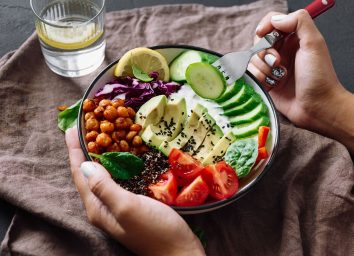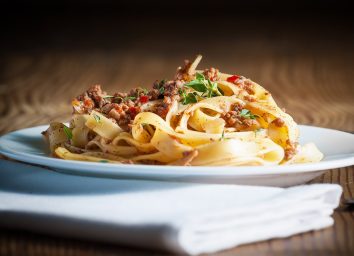40 Foods Nutritionists Say Are the Healthiest on the Planet for You
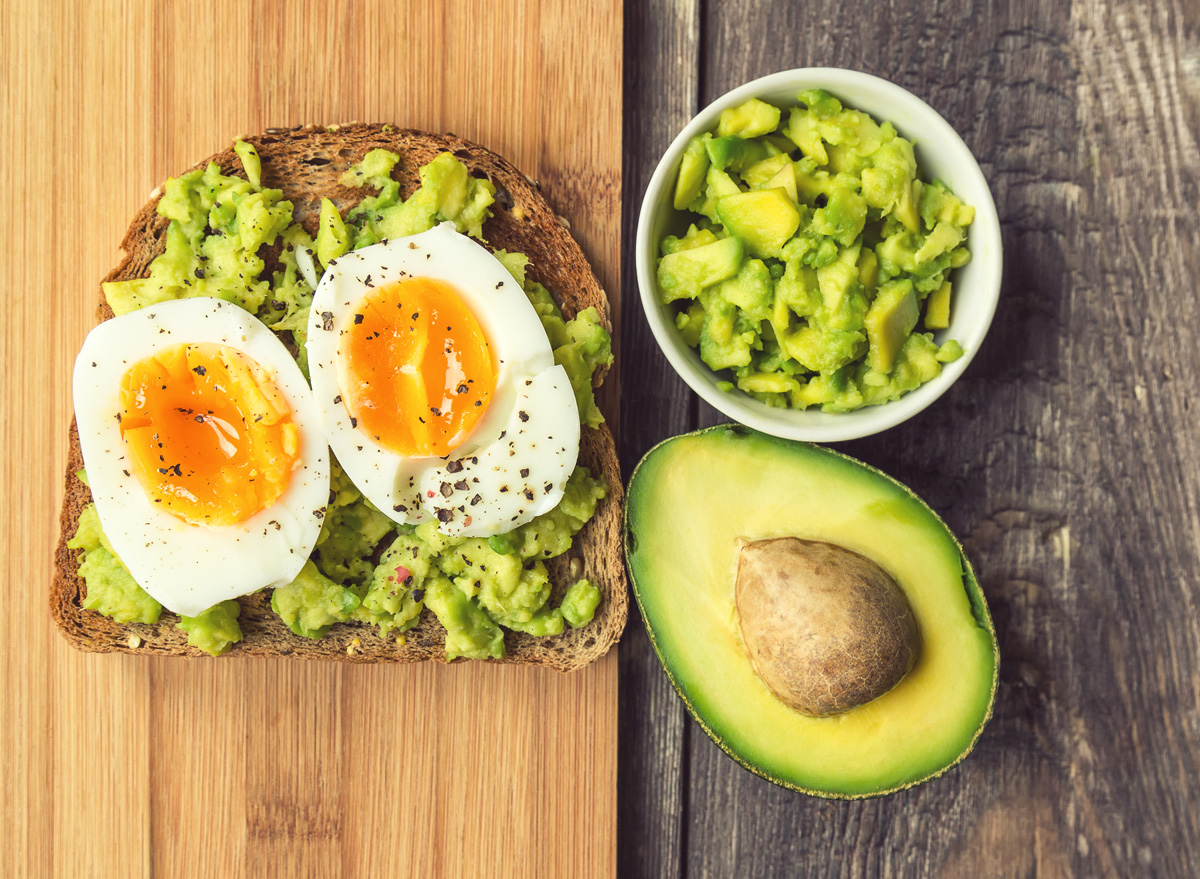
Making a trip to the grocery store can feel overwhelming: What foods should you stock up on? How many fruits and veggies should you buy? What about protein and snacks? Although you may generally know what foods are healthy, it's hard to determine just what you should be eating every day in order to stay healthy. Luckily, we've consulted registered dietitians and nutritionists who revealed what foods they swear by. So be sure to add these foods nutritionists eat to your grocery list and navigate the supermarket with ease. Who better to take some pointers from than the experts, right?
If these foods work for them to eat on the regular, they just might work for you, too. You'll want to take note of these foods and try incorporating them into your own daily diet. Who knows, you might just discover your new favorite go-to!
Olives
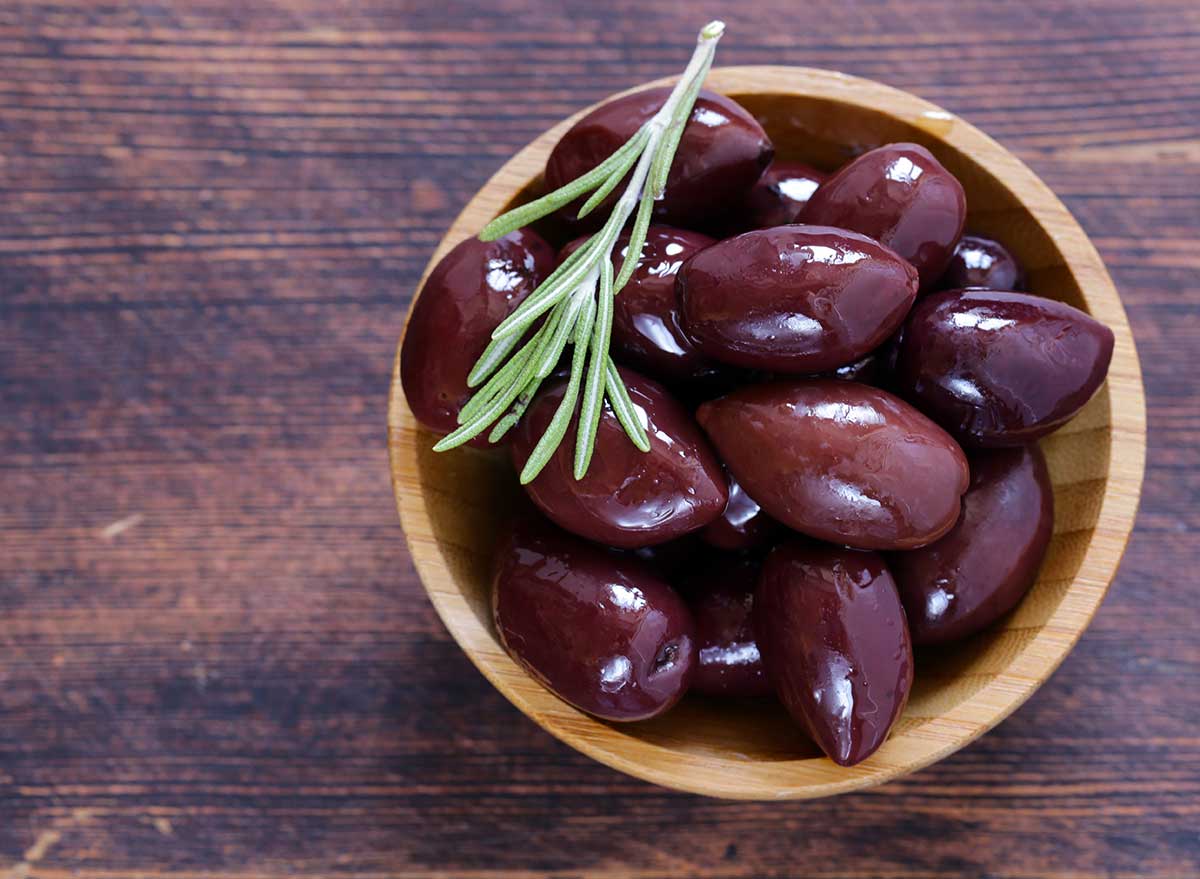
Olives aren't just for martinis! "Olives are a rich source of vitamins A and E, both of which protect the oils on the surface of your skin from free radical damage," says Peggy Kotsopoulos, RHN, and author of Kitchen Cures. "Olives also help strengthen connective tissues, improving skin tone and protecting against UV radiation. The rich monounsaturated fat content is particularly helpful to the heart since it reduces the risk for atherosclerosis [a disease in which plaque builds up inside your arteries] while raising good HDL cholesterol."
Plus, olives pack flavonoids that have anti-inflammatory properties and help reduce your risk for heart disease. And green or black, Kalamata or pimento-stuffed, they're pretty darn tasty if you ask us.
Cucumber
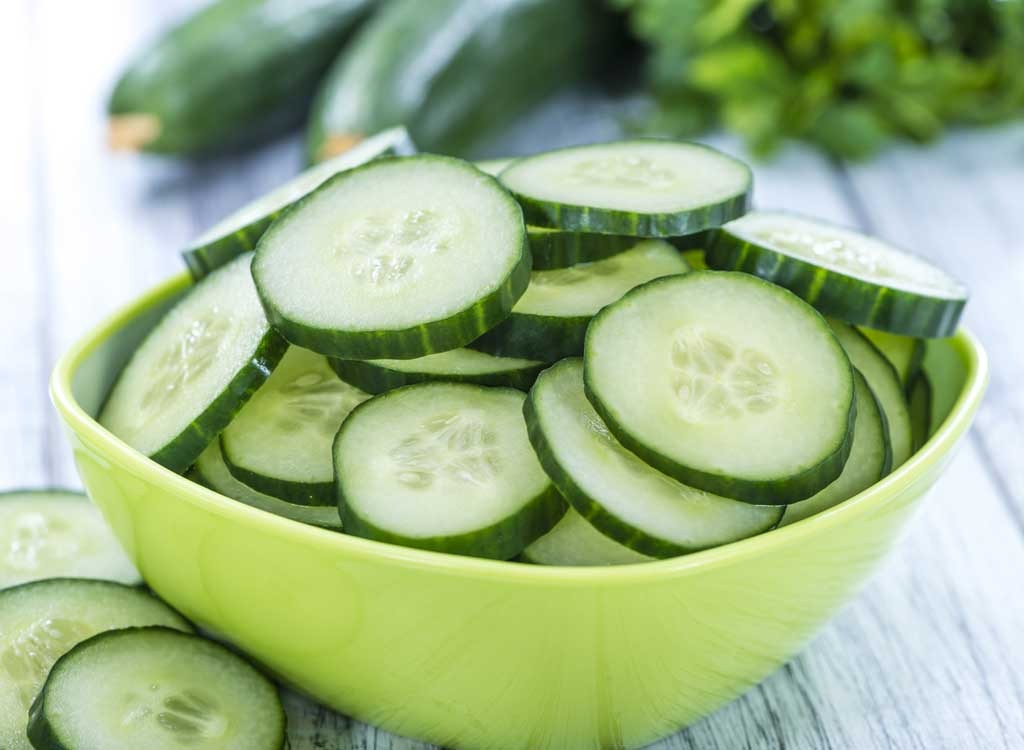
Bring on the cukes! "Cucumber is a delicious and light way to hydrate the body and replenish its daily vitamins. In fact, cucumber holds the most water by weight of any solid food (95 percent water)," says Lisa Hayim, registered dietitian and founder of The WellNecessities. "When we're not in the mood to drink our fluids, slicing up some cucumbers or adding them to a salad can help with hydration and detoxification." Cucumbers are also naturally low in calories, making them ideal for weight loss or just to improve overall digestion.
Chia Seeds
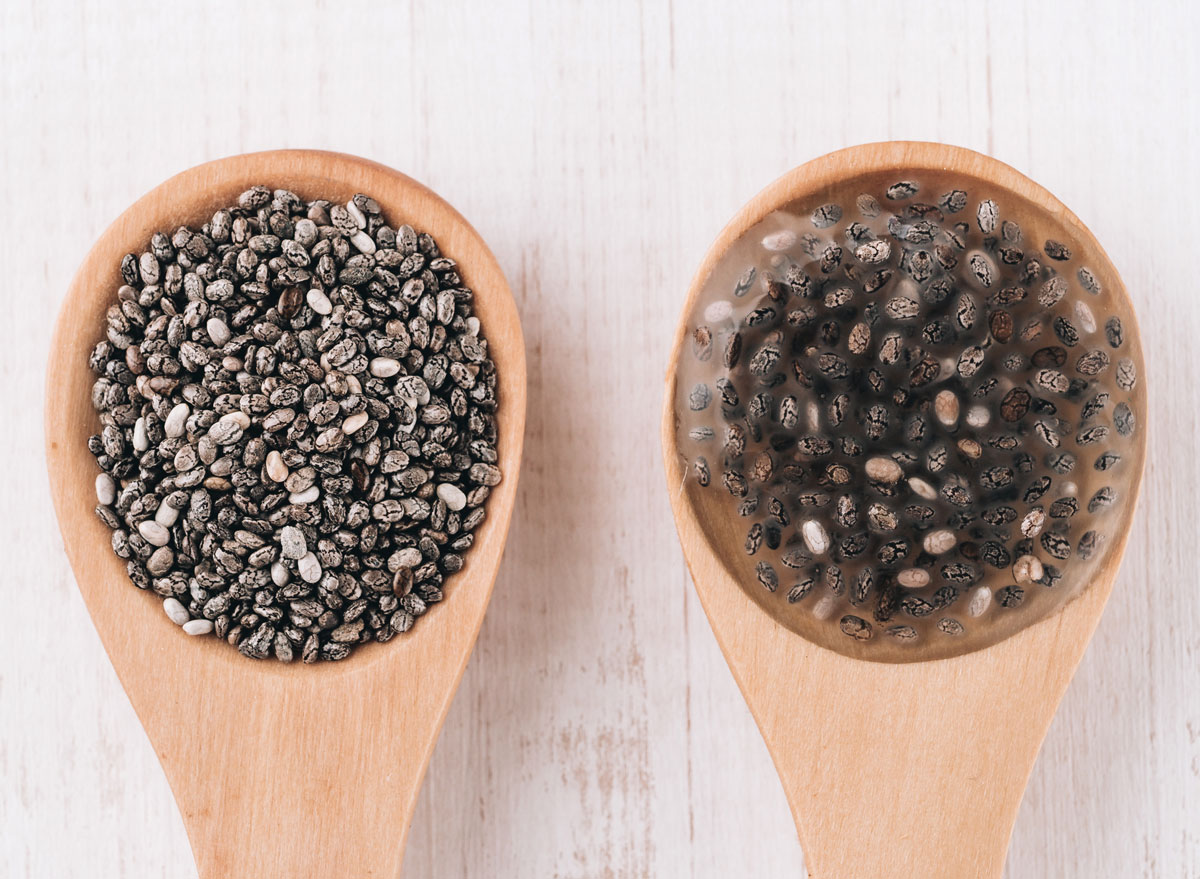
"Although chia seeds are tiny, they pack the most omega-3 fatty acids (which are proven to reduce risk factors for heart disease) and fiber compared to any other food by weight," says Hayim. Stir them into yogurt, add them to a salad vinaigrette, or try them in one of these 50 Best Chia Seed Recipes. "They're also an easy alternative to carbs," says Rebecca Lewis, RD for HelloFresh. "They are also an excellent source of vegetarian-based protein."
Jackfruit
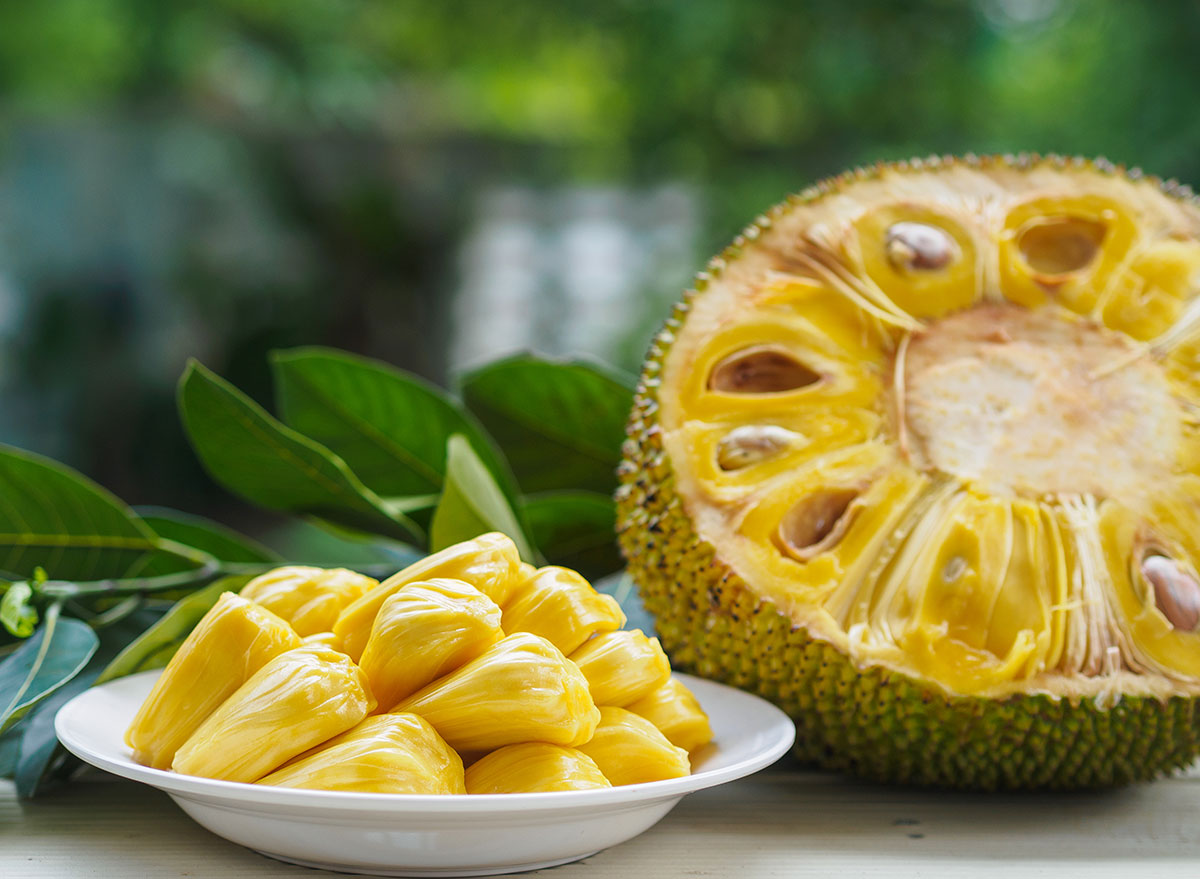
"Jackfruit is the wellness world's next big thing," says Hayim. "Vegan restaurants caught on early with the creation of jackfruit tacos, using the meaty consistency of the jackfruit as the filler. The fruit is deliciously sweet, rich in vitamin and minerals, and contains no saturated fat or cholesterol. While most B-vitamins are found in non-plant sources, jackfruit is rich in vitamin B6, niacin, riboflavin, and folic acid, which all play an important role in helping the body in converting food to energy." OK, we're sold!
Avocados
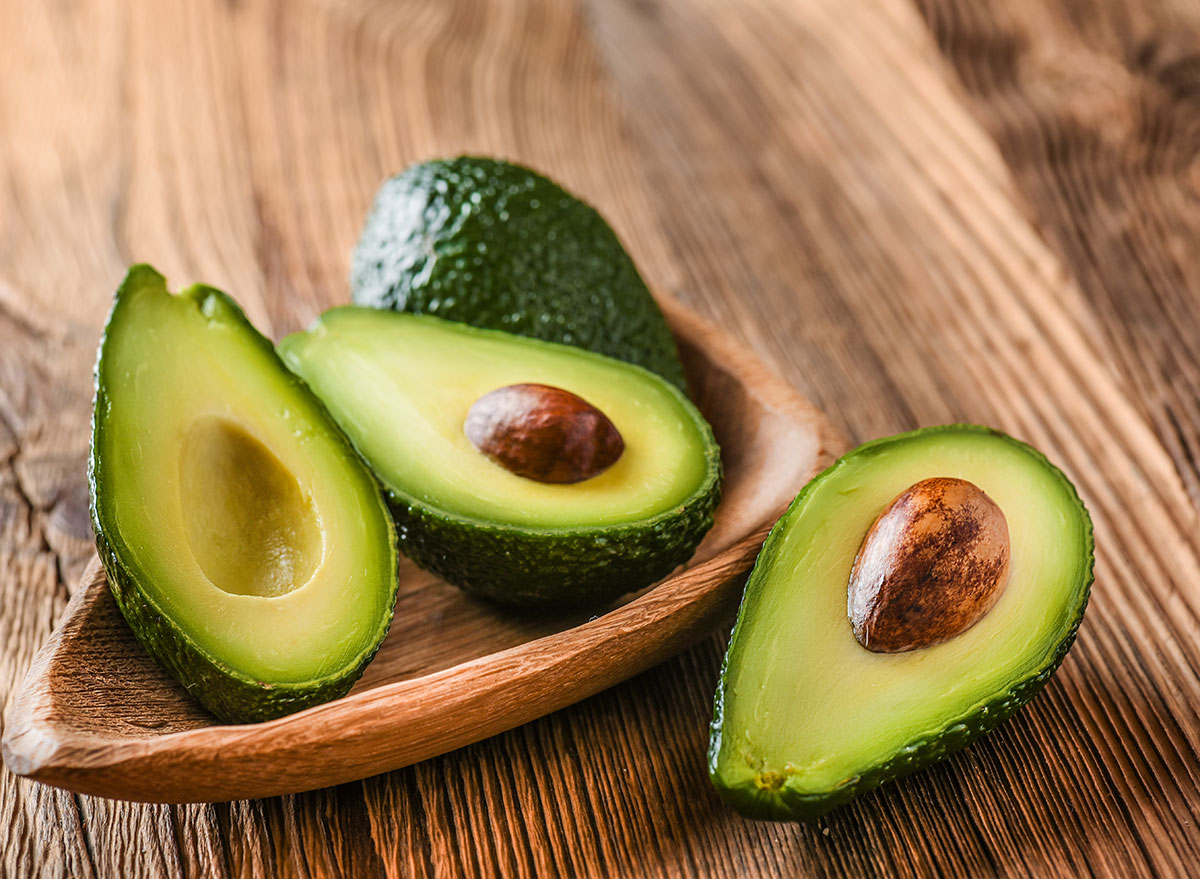
Even nutritionists are avo-crazy! "I am a huge fan of these fruits. They're packed with vitamin C to help boost your immune system and healthy fats, which are an essential part of your diet," says New York City-based dietitian Aislinn Crovak, RD, CDN. "They are a great addition to most foods, as a spread on sandwiches, or even plain with some sea salt and freshly cracked pepper. My go-to morning breakfast is two sunny-side-up eggs with a side of creamy avocado. Delicious and nutritious!"
And here's a pleasant surprise: "Avocados also offer up to 40 percent of your daily recommended fiber intake," says Julieanna Hever, MS, RD, CPT, a plant-based dietitian and author of The Vegiterranean Diet and The Complete Idiot's Guide to Plant-Based Nutrition.
Greek Yogurt
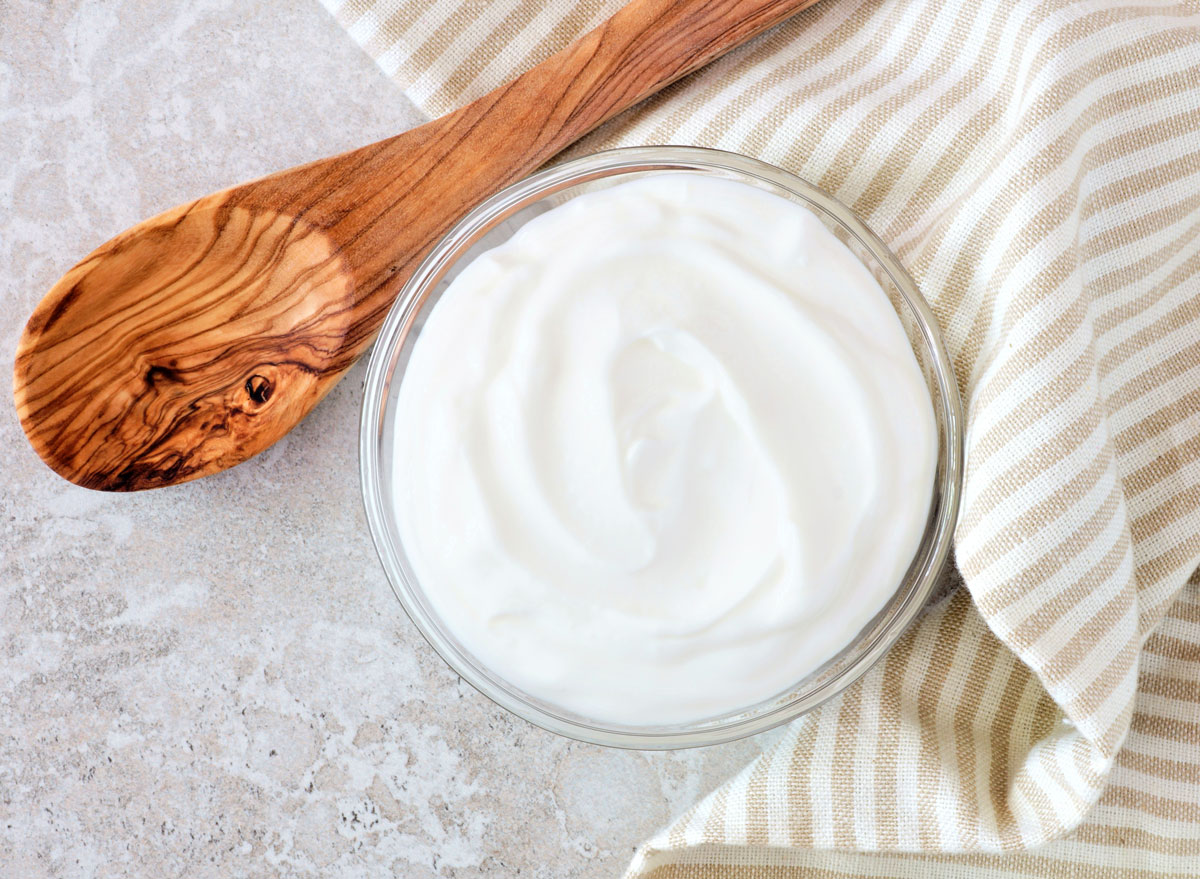
"Greek yogurt provides probiotics, protein, and calcium. Probiotics are healthy bacteria that live in your digestive tract. It's the balance of good and bad bacteria that helps maintain your gut health, immunity, and overall health," Dr. Sonali Ruder, DO, aka The Foodie Physician, says. "Greek yogurt is also packed with protein, which helps us maintain muscle mass as we age and also gives us long-lasting energy. It can be an especially good source of protein for vegetarians. Greek yogurt also provides calcium (a mineral that many Americans fall short on), which helps maintains bone health."
Swiss Chard
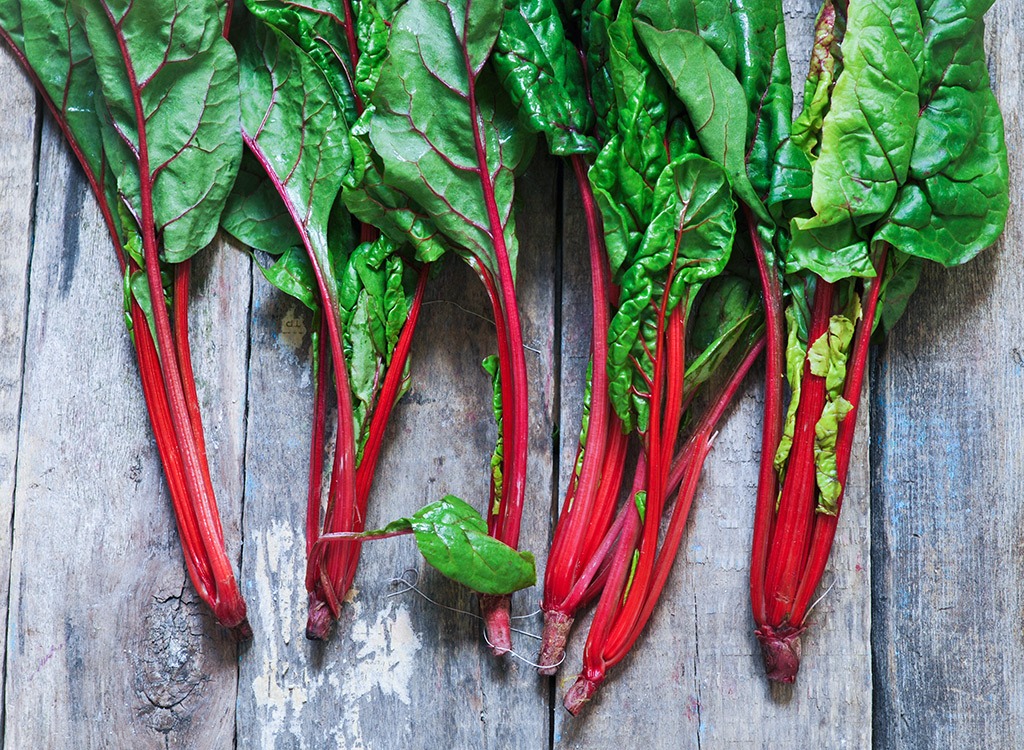
"Swiss chard is one of the healthiest leafy greens around," says Kotsopoulos. "It helps to boost cardiovascular strength and keeps bones healthy. Plus, it has an abundant source of Vitamin K." Vitamin K is one of the most important bone-building vitamins, helping to shuttle calcium to your bones and helping your bones absorb the calcium once it gets there. One cup contains 374 percent of your daily value.
Walnut Pesto
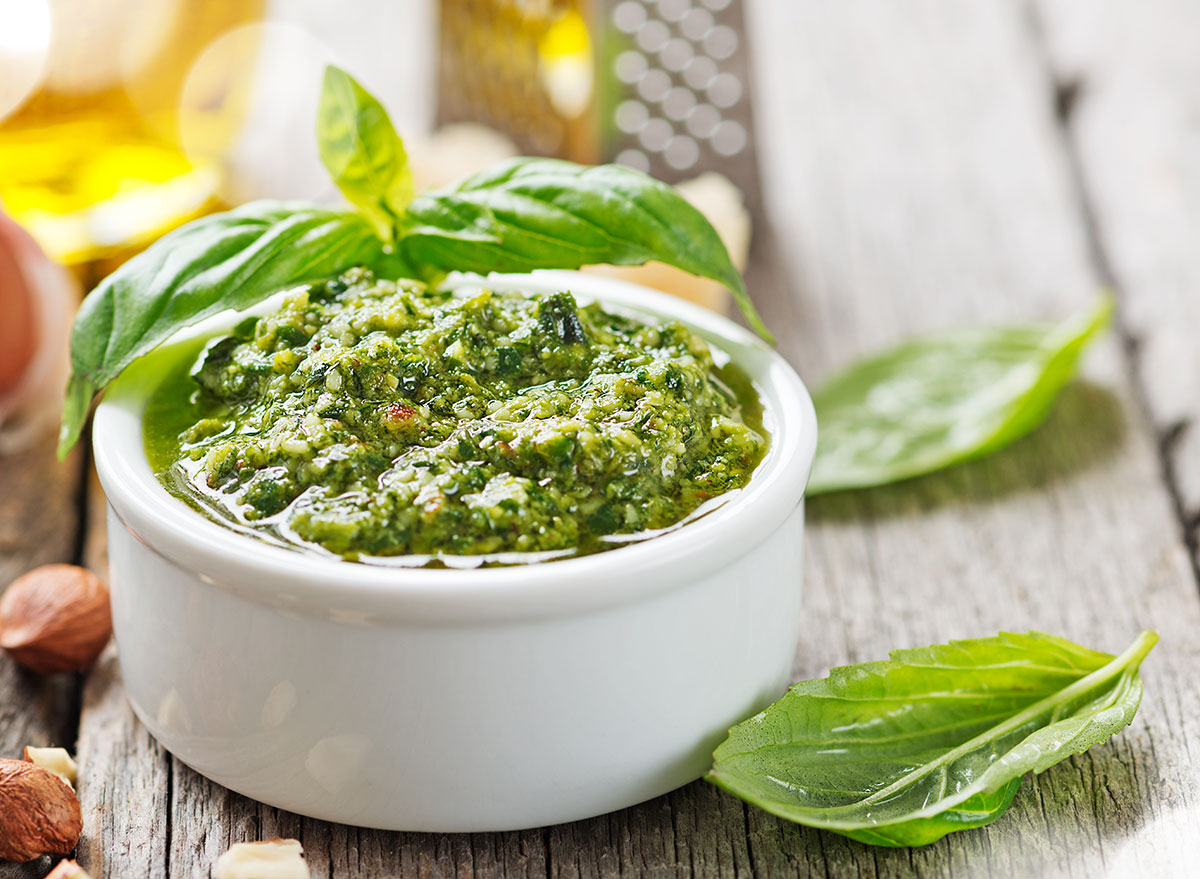
Creamy, savory sauce twirled with your pasta or smothered on a slice of toast? Pesto is pretty obsession-worthy if you ask us. "Pestos are a delicious blend of phytonutrient-packed green herbs, olive oil, a bit of high-flavor cheese, and in this case, walnuts for their distinct taste and omega-3s," says Annie Kay, MS, RDN, Lead Nutritionist at the Kripalu Center for Yoga & Health. "Herbs also have some of the highest ORAC scores (a measure of antioxidant levels) of any food."
Apple Cider Vinegar
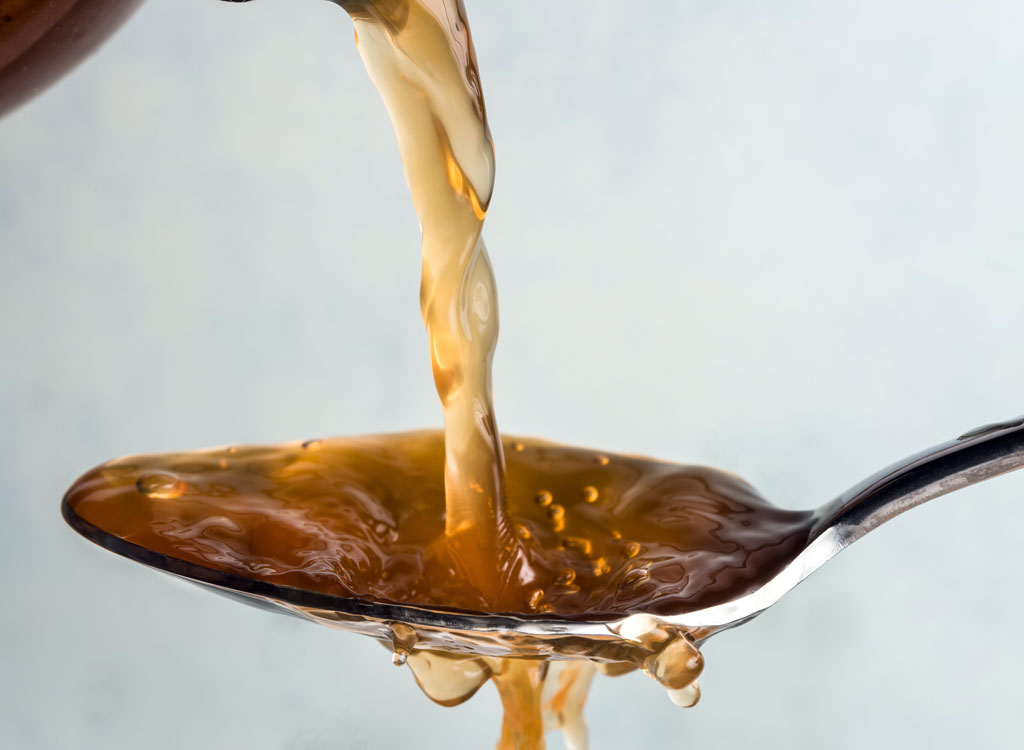
"One of the most important things I stock in my kitchen is apple cider vinegar," says Dr. Taz. We're starting to think we should do the same. "Apple cider vinegar aids in preserving a healthy alkaline pH level, which helps prevent fatigue, inflammation, weight problems, acne, and heartburn," Dr. Taz says.
Watermelon
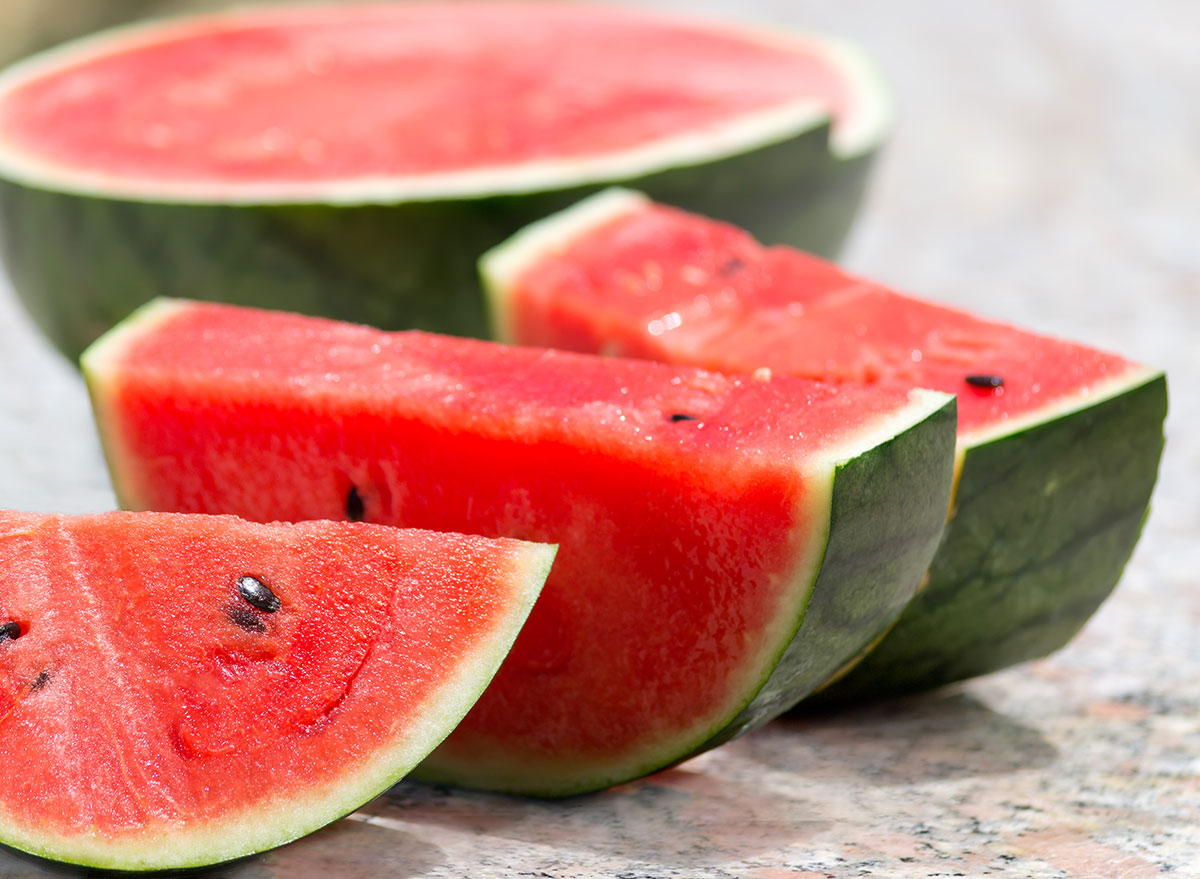
"Watermelon is one of the best ways to stay hydrated. [It's] made up of mostly water and rich in electrolytes, particularly potassium, which is essential for hydration on the cellular level. It keeps your skin flawless and fresh-looking from the inside out," says Kotsopoulos. "Watermelon water also contains the rind, which is rich in vitamin C, a powerful antioxidant that firms up skin and helps to slow the aging process. And it also contains L-Citrulline, which acts as a vasodilator helping to deliver oxygen to all the cells in your body and is also great for glowing skin. Plus, it's rich in antioxidant lycopene (way more than tomatoes), which helps build our skin-firming collagen and prevents against UV damage."
Amaranth
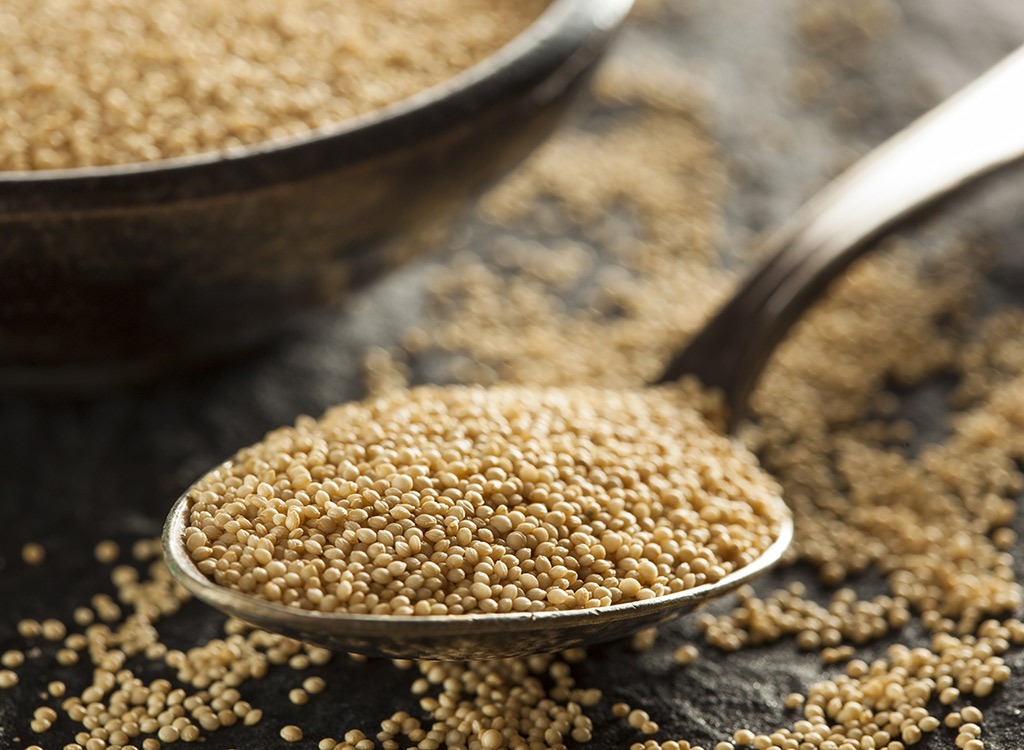
Superfood-crusted turnip fries, anyone? Grab some amaranth and get ready for your taste buds and waistline to be delighted. "Like quinoa, amaranth is not actually a grain, but the seed of an amaranth plant. It is high in protein, and surprisingly, calcium, too," says Hayim. "Amaranth is usually cooked in water, like rice, or can be consumed raw. Amaranth is also naturally gluten-free, and has been shown in studies to lower incidences of chronic disease such as heart disease and stroke."
Ginger
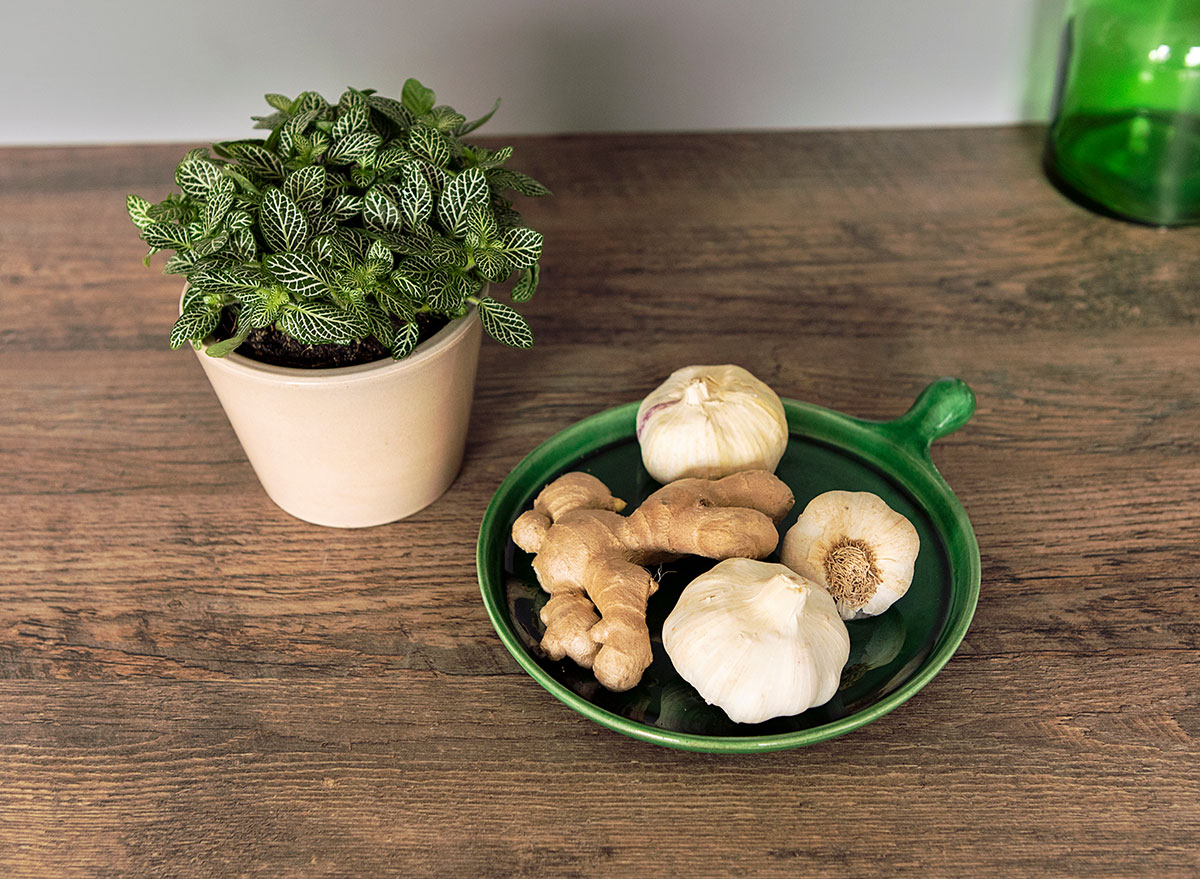
"One of the best-known digestive aids, ginger contains the active compound gingerol, which has been shown to help indigestion, nausea, and vomiting," says Dr. Tasneem Bhatia, MD, also known as Dr. Taz, a weight loss expert and author of What Doctors Eat and The 21-Day Belly Fix. "This same compound also has anti-inflammatory properties, assisting in the relief of joint pain and inflammation." Ginger tea to beat the bloat? We'll get the kettle going…
Quinoa

"Quinoa is a great source of protein, fiber, and magnesium. It is a versatile plant-based protein that can be substituted as rice in many recipes and included in baked goods as well. It can be added to almost anything for an extra protein-packed snack," says Crovak. "It's especially delicious in chocolate, adding some extra crunch in every bite." Bonus: Not only is quinoa higher in protein than most grains, but it is also a complete protein with all nine essential amino acids.
Sweet Potatoes

"Although [they're] a starchy food, sweet potatoes are rich in beta-carotene, which is essential for healthy skin and eyes," says Crovak. "They are a great source of fiber as well and can be added to casseroles, roasted or steamed as a side dish, or even as a french fry substitute. I even love them baked and sprinkled with cinnamon and a touch of butter for a sweet treat."
Hemp Seeds
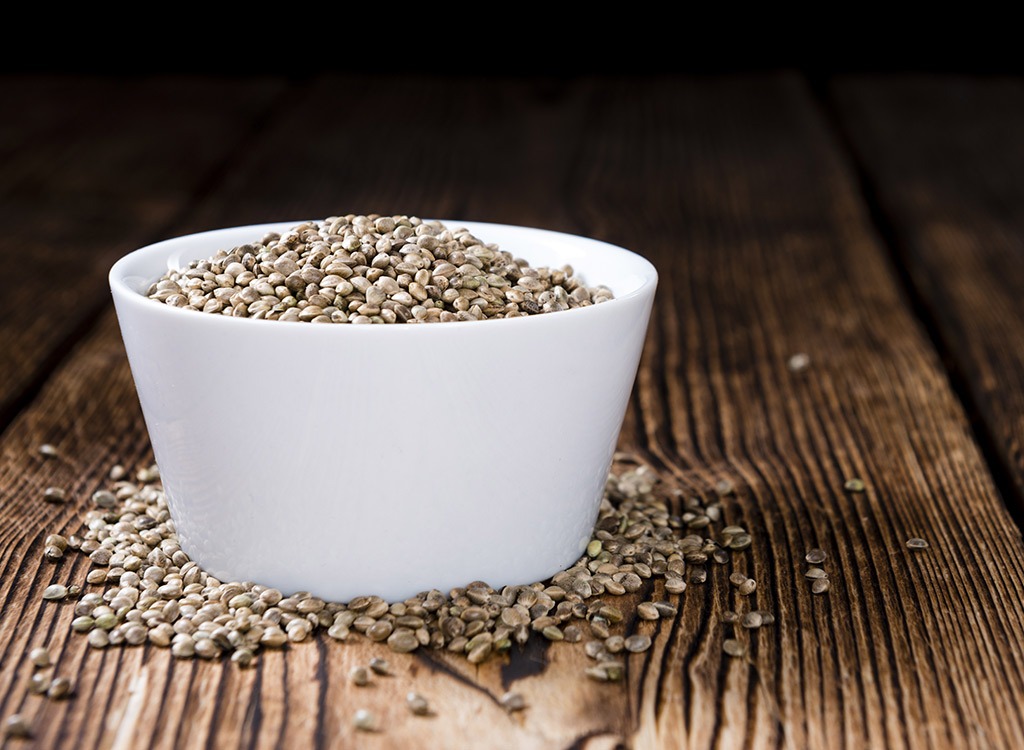
"Plant proteins are key to health, and even people who have difficulty tolerating nuts can often eat seeds without a reaction," says Kay. "In addition to protein, hemp seeds are rich in fiber (fiber is a plant phenomenon—there is none in animal foods), and filled with anti-inflammatory omega-3 fats."
And vegetarians can rejoice about hemp seeds for another reason, too: They're a complete protein. "Nutty and chewy, hemp seeds are considered a complete protein, providing five grams of protein in a two-tablespoon serving. Hemp seeds' fatty acids promote heart health, reduce inflammation, and promote brain health. They can be easily baked into muffins and cookies, mixed into oatmeal, or sprinkled on top of a pasta dish for extra crunch," says Janel Ovrut Funk, MS, RD, LDN.
Goji Berries
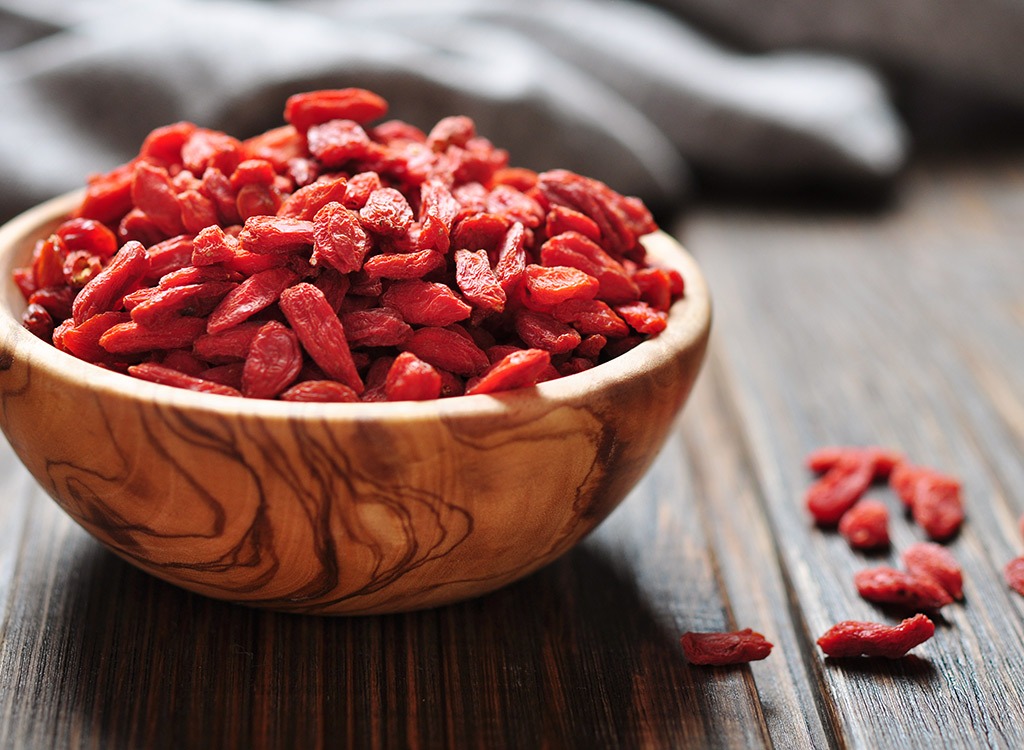
"Goji berries are rich in plant-based antioxidants, our body's best defense against disease-causing free radicals," says Hayim. Studies show that they may even play a role in supporting weight loss. In a recent experiment, overweight adults were put into two groups: one that consumed goji berry juice and one that received a placebo. The results of the study showed that in just two weeks, the group that consumed the goji berry juice had a decrease in waist circumference compared to the group that received the placebo.
Hayim suggests adding goji berries to your salads or oatmeal or eating a handful plain for a deliciously tangy boost of natural energy.
Kale
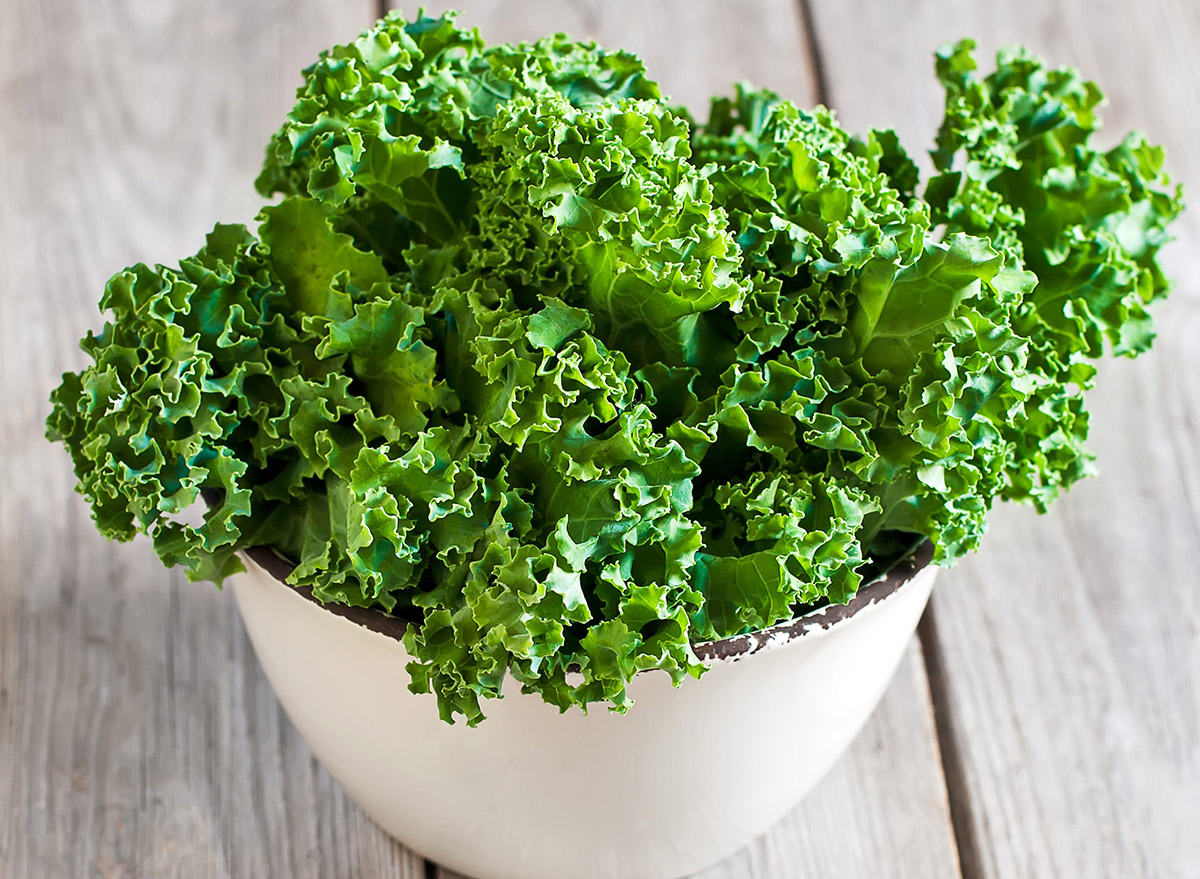
"Kale is packed with vitamins, minerals, and phytonutrients, a substance found in plants that is believed to be beneficial to human health and prevention of various diseases," says Hayim. "The phytonutrients promote optimal cell function and communication, ensuring that enzymatic reactions occur when they are supposed to within the body, and lay down the foundation for a strong immune system to fight illness."
Brussels Sprouts
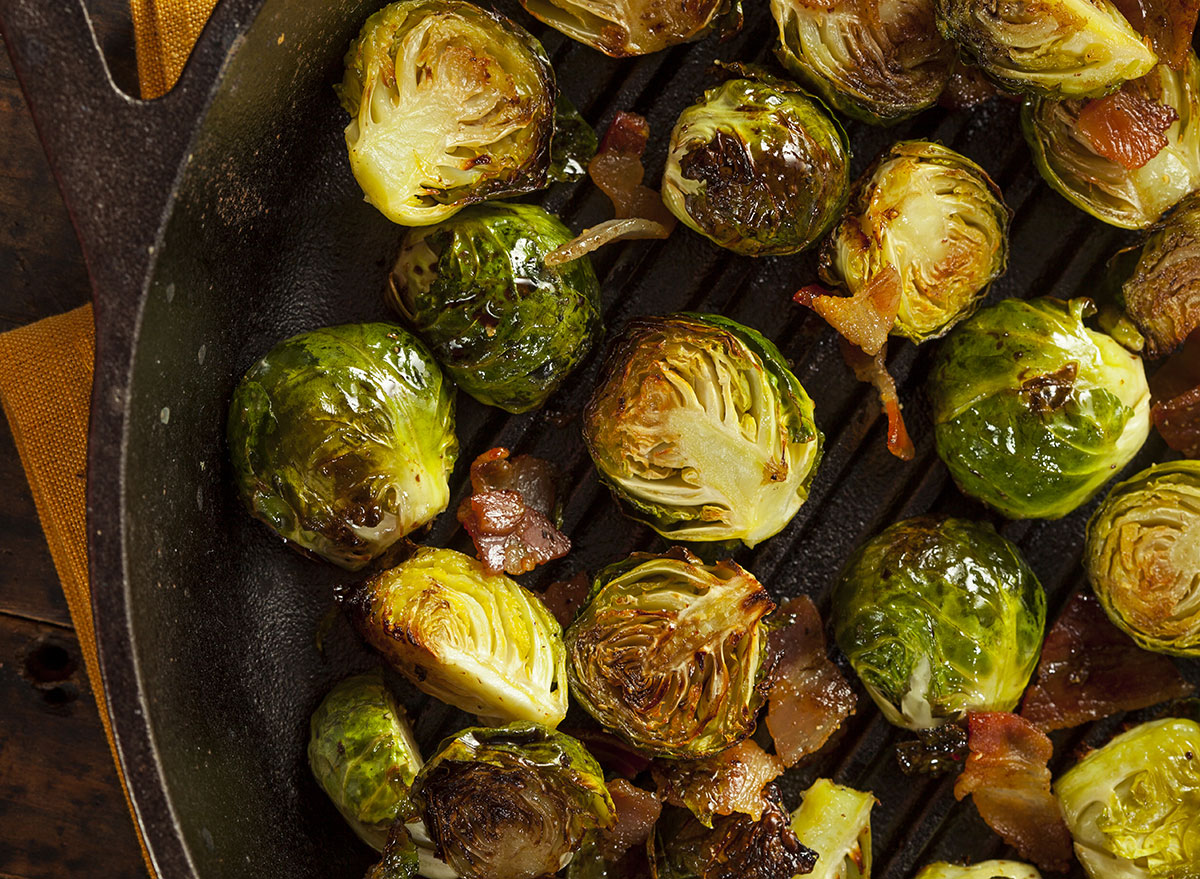
"If you can't get enough of this winter favorite, you're in luck," says Toby Amidor, MS, RD, CDN, Nutrition Partner of the American Macular Degeneration Foundation. "Besides being delicious, Brussels sprouts are a rich source of the antioxidant vitamin A, important for eye growth and development, and the antioxidant vitamin C. They also contain the plant chemicals lutein and zeaxanthin, nutrients that could help reduce the risk of developing eye diseases such as macular degeneration."
Did we mention that just a cup of the small but mighty veggie offers 100 percent of your daily value of vitamin C and 100 percent of your daily value of Vitamin K, which helps your blood clot and is necessary for building strong bones?
Wild Salmon
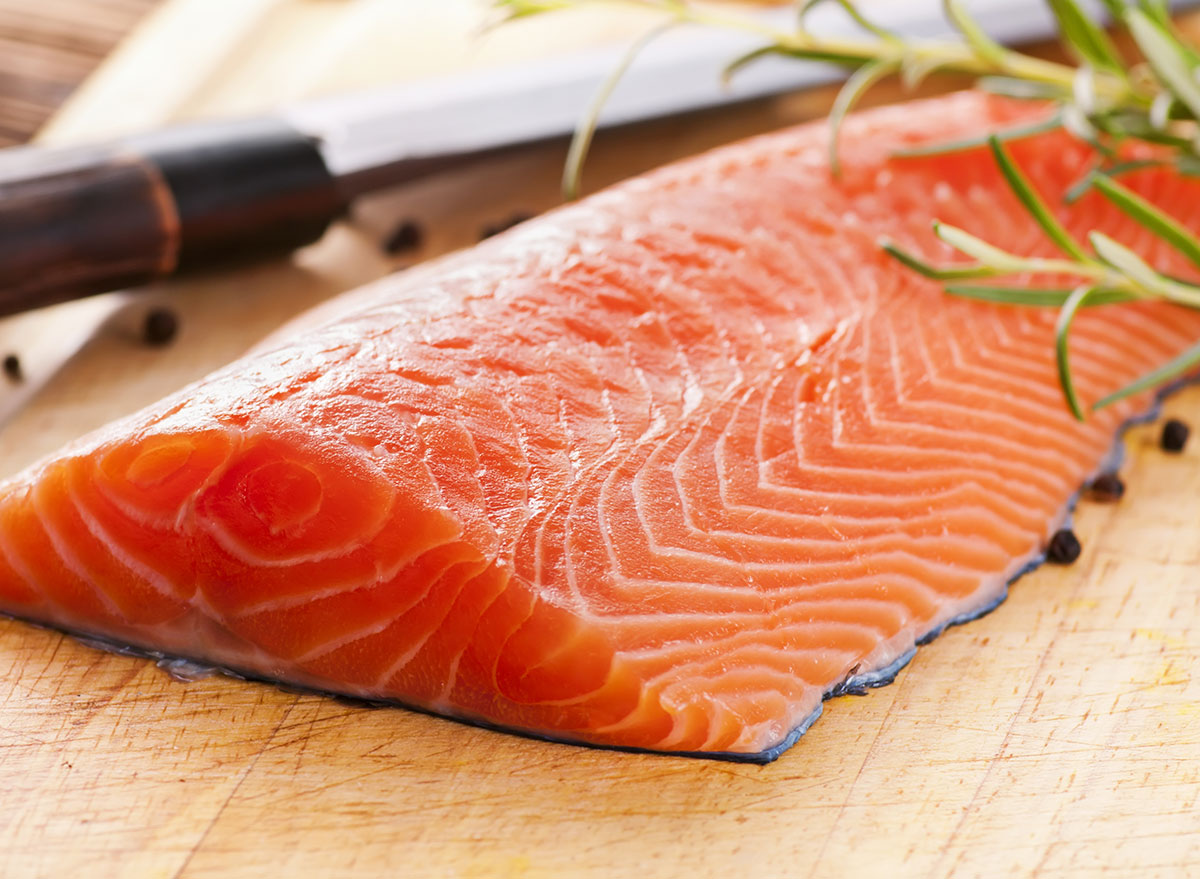
"Salmon contains a good dose of omega-3 fatty acids as well as a unique combination of antioxidants, including DMAE and astaxanthin (which makes it pink)," says Dr. Taz. "All of these constituents control inflammation and contribute to a hydrated and youthful appearance."
Nut-Based Cream Cheese
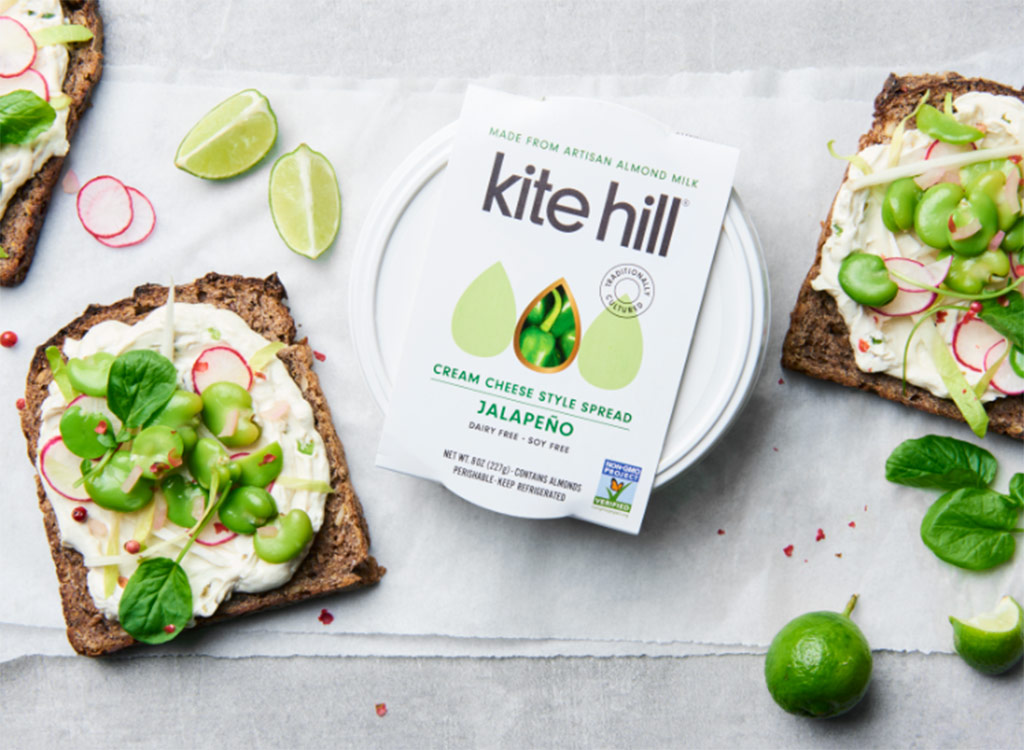
Get ready to spread on the non-dairy love with these tantalizing spreads from Kite Hill. "For those of you who have jumped off the dairy ship long ago, you know it's nearly impossible to find a cream cheese substitute that isn't loaded with soy, additives, or partially hydrogenated fats," says Hayim. And even if you're new to eating dairy-free, or still enjoy dairy, you won't be disappointed. "With its creamy texture and all-natural ingredients, this delicious, almond-based cream cheese is taking over the non-dairy cream cheese world. Try original, or spice it up with chive flavor on a bagel, or even smeared on a raw Portobello mushroom."
To get started on a dairy-free lifestyle, don't miss these 22 Expert Tips and Swaps for Eating Less Dairy.
Dandelion Greens
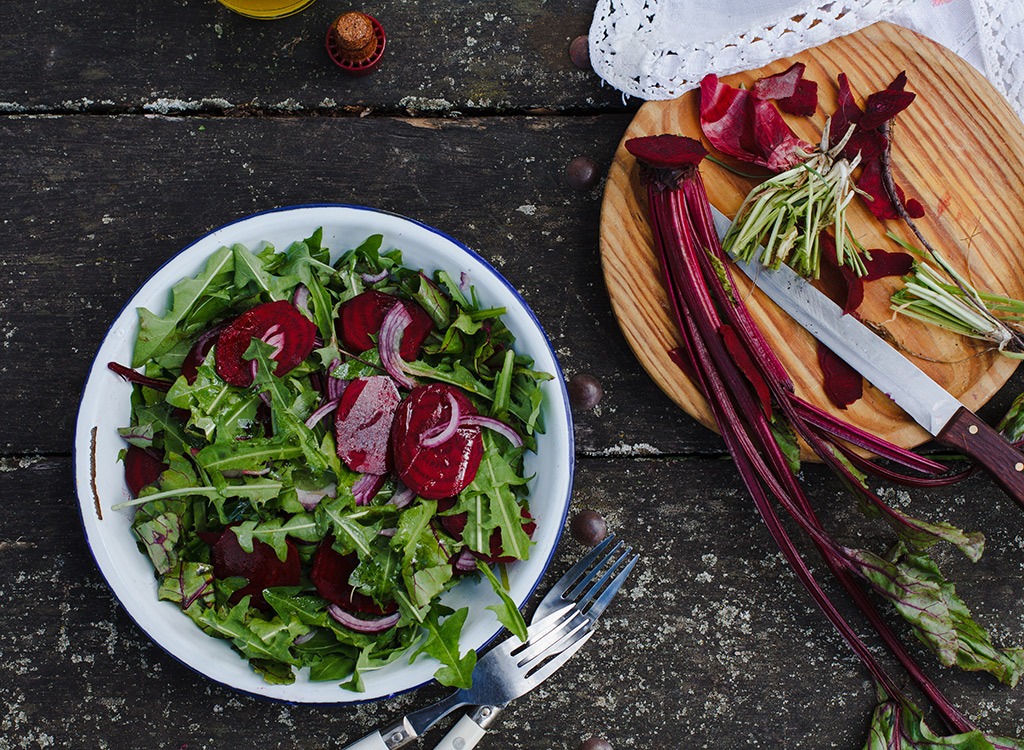
"When it comes to nutrient density (nutrients per calorie), the mighty dandelion is tops," says Kay. "Rich in protective antioxidant vitamins A and C, dandelions are a gentle cleansing folk tonic for the liver and gall bladder." You can eat tender leaves from areas free of chemical spray or look for them at your local farmer's market or health food store.
Chickpea Pasta
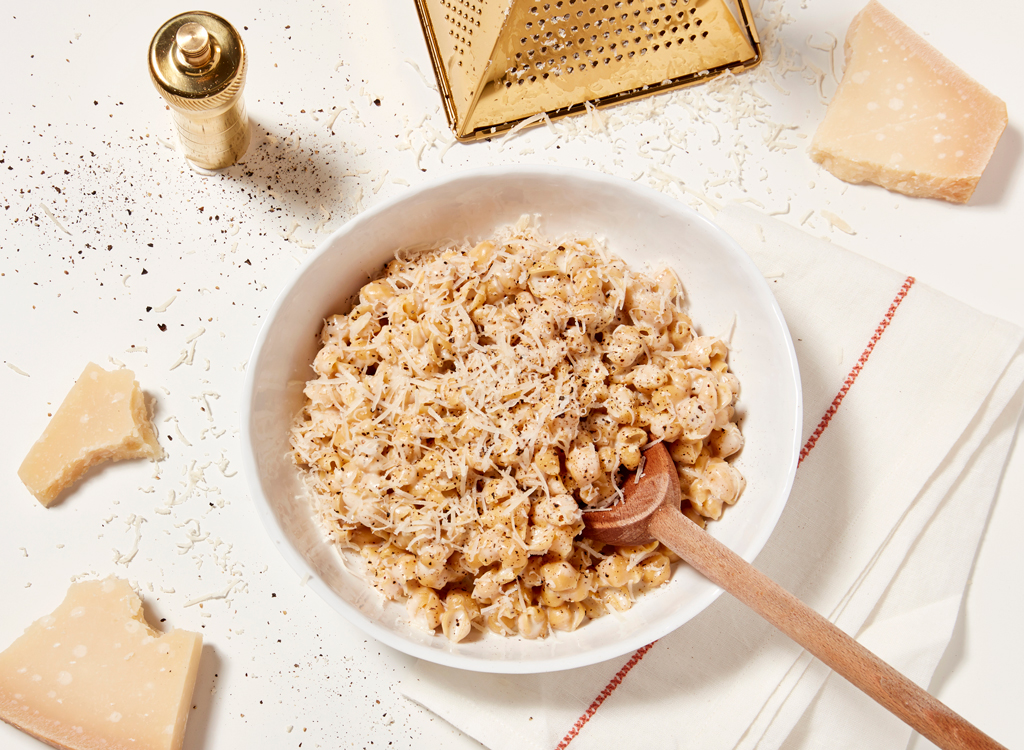
This gluten-free pasta alternative (made out of chickpeas!) doesn't have any refined flour and is lower in carbohydrates than traditional pasta. "Unlike regular pasta, a chickpea pasta is made out of beans," says Hayim. "This makes you feel fuller faster and helps to avoid overeating and weight gain. Banza is made from garbanzo beans and pea protein, making it naturally gluten-free and high in protein. This pasta keeps you full longer, and tastes just as delicious, if not more, than that traditional stuff."
Coconut Oil
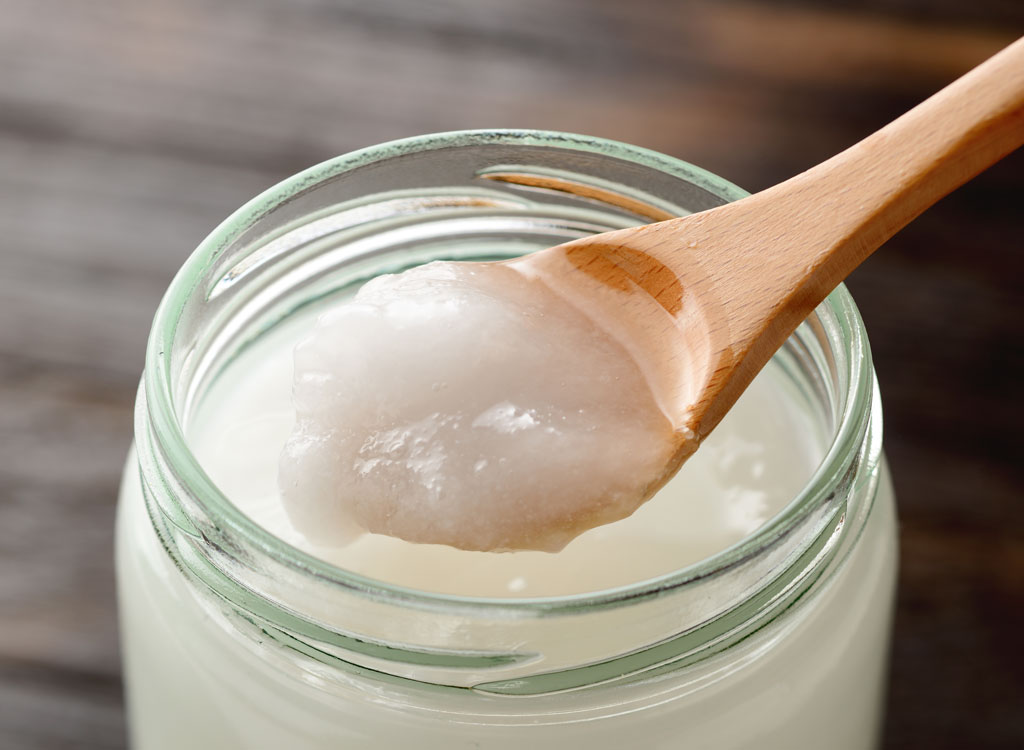
Coconut oil is one of our favorite superfoods for a reason, and it's one food nutritionists eat, too. It's also super versatile: Have a tablespoon or so plain before a workout, or slip some into your favorite shake.
"One tablespoon contains 122 calories and 13.6 grams of fat (12 grams of which are from saturated fat). Because it's so high in saturated fat, coconut oil's health benefits are often called into question," says Dr. Taz. "But it actually elevates HDL levels (the good cholesterol) and reduces heart disease. It also contains lauric acid, which has antibacterial, antimicrobial and antiviral properties. I like to spread it on rice cakes for a quick and healthy snack."
Broccoli
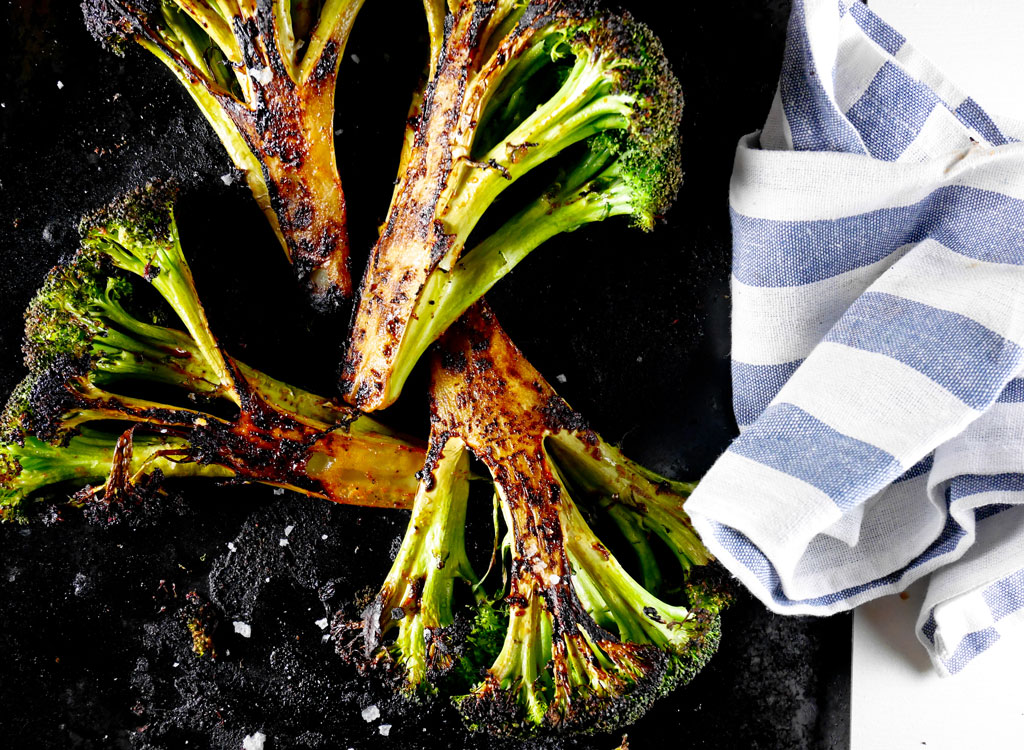
Just because you poked at it on your plate back in the day doesn't mean you're gonna wanna push this cruciferous wunderkind away in your adulthood. "In addition to being loaded with bone-building vitamin K and absorbable calcium, broccoli is an alkalizing food that's been linked to greater bone density and reduced bone loss in postmenopausal women," says Kotsopoulos. "It's also rich in nerve-calming magnesium, folate for pregnant mamas, and fiber that helps keep you full and aids in weight-loss."
Butternut Squash
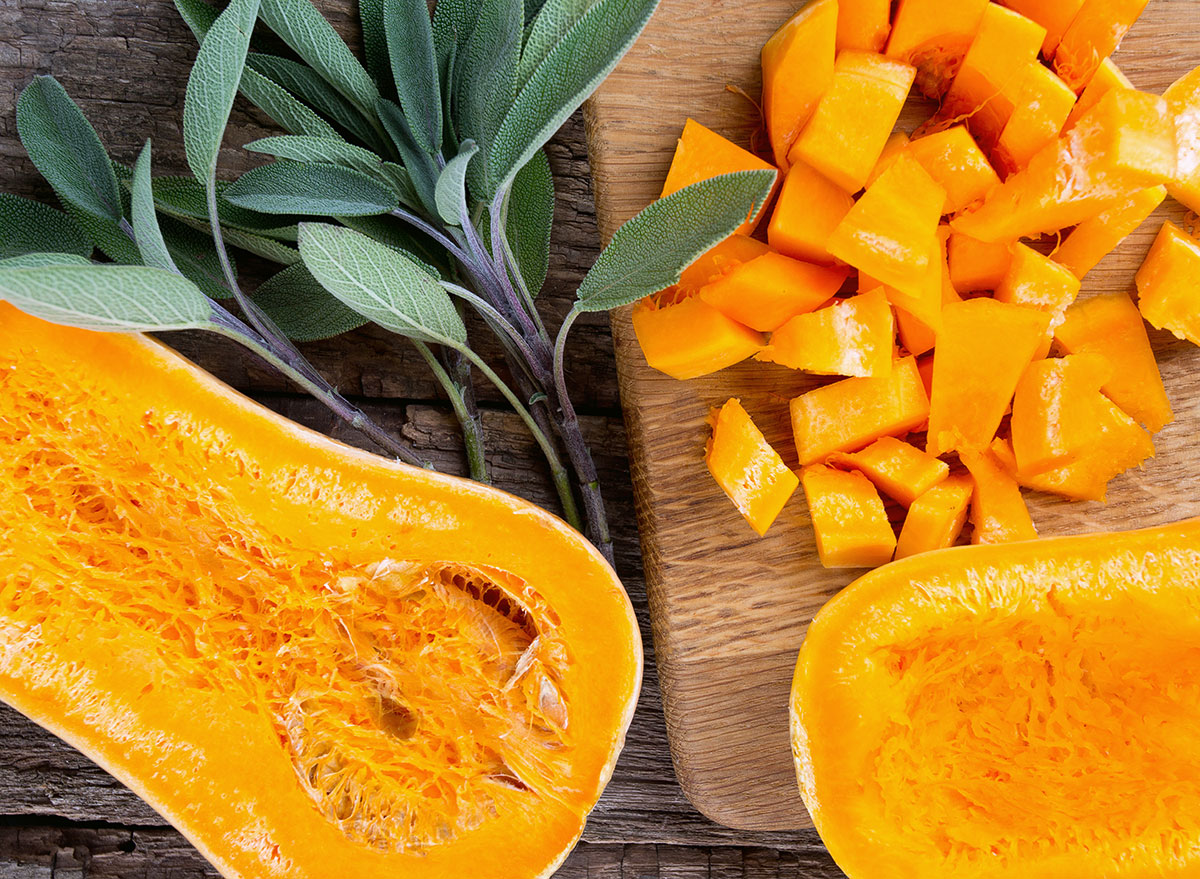
Perhaps the ultimate fall superfood, this tasty veggie is also a boon for eye health. "A vitamin powerhouse, butternut squash contains high amounts of vitamin A, C, and E, all powerful antioxidants that are important for healthy eyes. Roasted and tossed in a hearty salad or used in soups or curries, butternut squash is a versatile ingredient that won't disappoint," says Amidor.
Tea
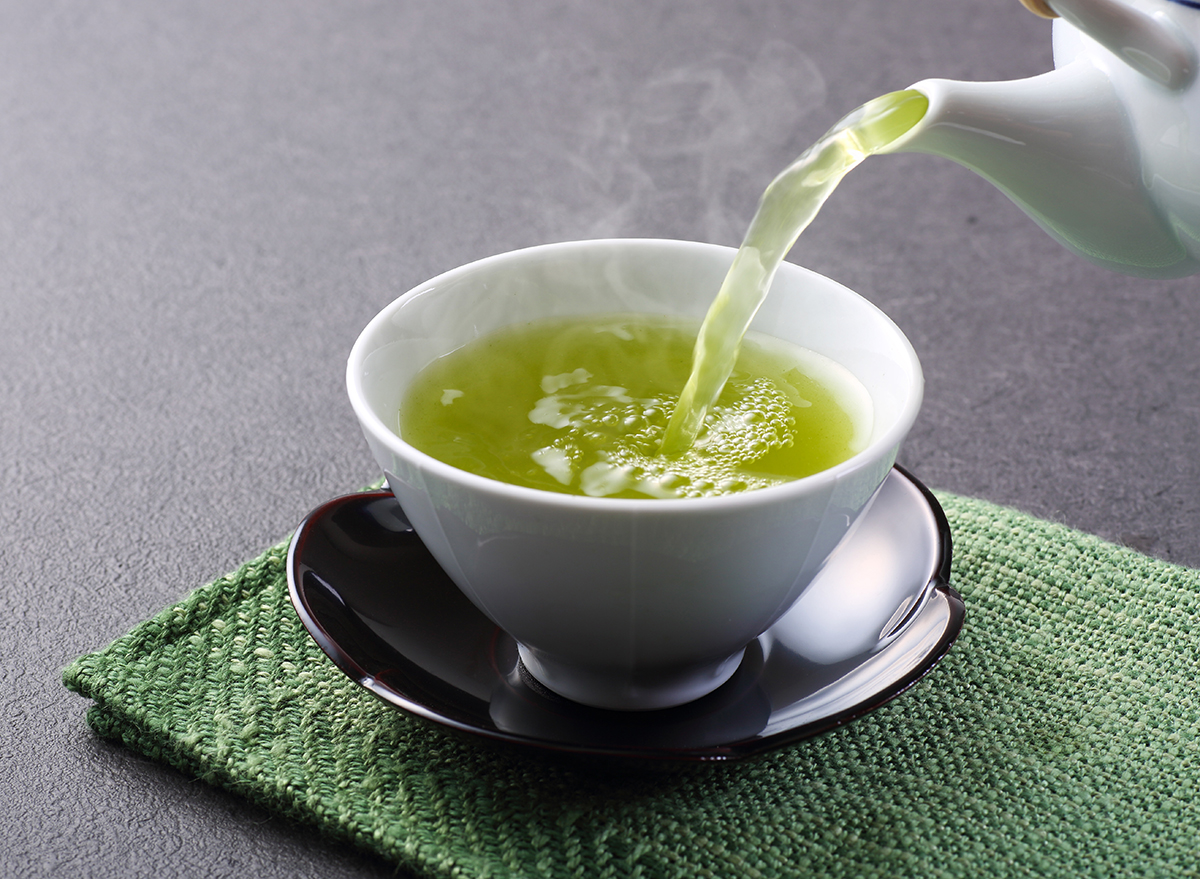
"Tea is a good source of polyphenols, which have anti-inflammatory and antioxidant effects. That's why tea is believed to promote cardiovascular health and support healthy vision, teeth, bones, memory, and cognition," says Alexandra Miller, RDN, LDN, Corporate Dietitian at Medifast, Inc. "If left unsweetened, tea is also naturally low in calories and free of sodium and sugar."
You can do more with tea than just drink it, too. "Try cooking with tea or using it as the liquid for a smoothie," says nutritionist Kayleen St. John, RD at the Natural Gourmet Institute, a health-supportive cooking school in New York City. Swapping out water for tea is an easy way to increase the antioxidant content of your dishes and lose weight fast.
Hummus
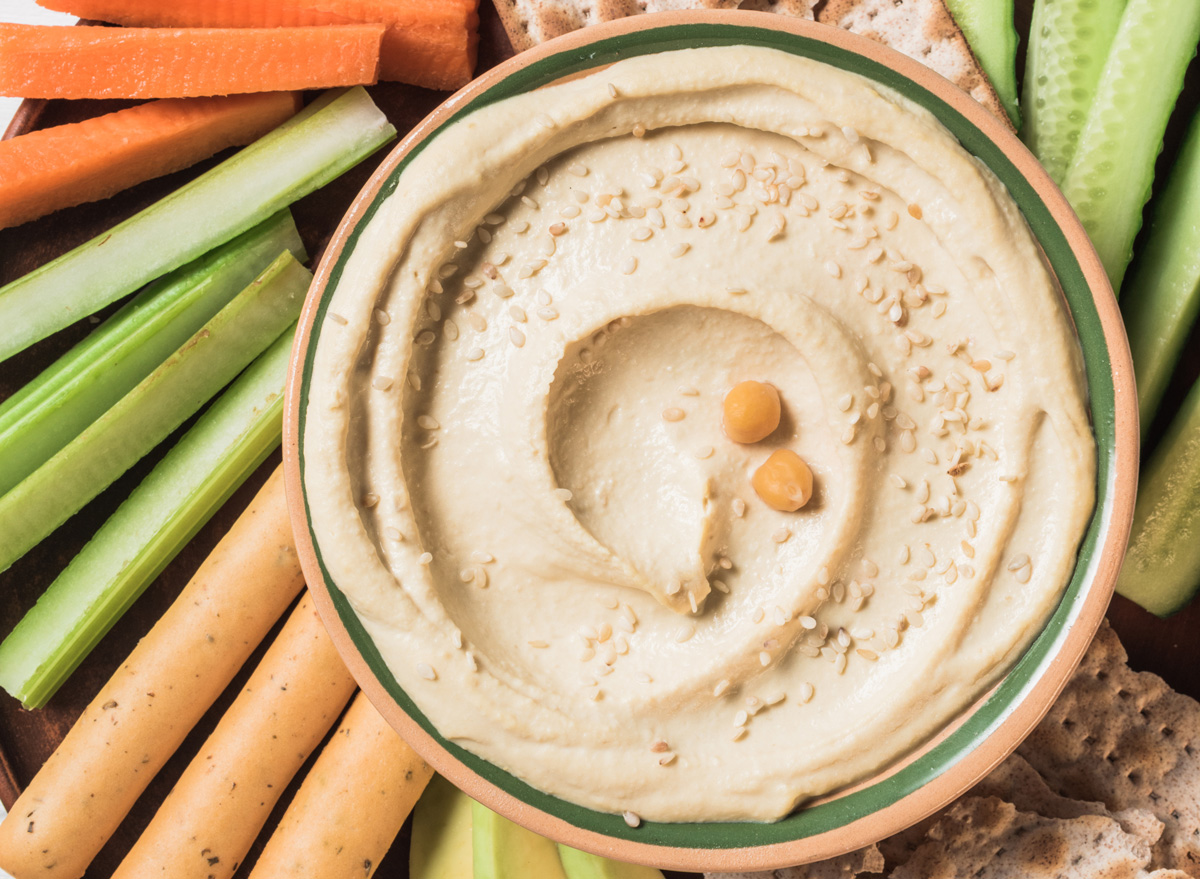
As far as what nutritionists eat, hummus is one food at the top of the list. "Hummus should be a food group," says Hever. "With all of its potential in the kitchen, there may not be any other food that provides such a satisfying shot of nutrition. Protein-, micronutrient-, and fiber-jammed chickpeas are typically mixed with tahini, which is loaded with healthy fats and minerals, and then boosted along with vitamin C-rich lemon or other citrus, which synergistically improves the absorption of iron from the chickpeas. It is a winning—and delicious—combination." Now, excuse us while we go grab our broccoli and cukes for dipping.
Blueberries
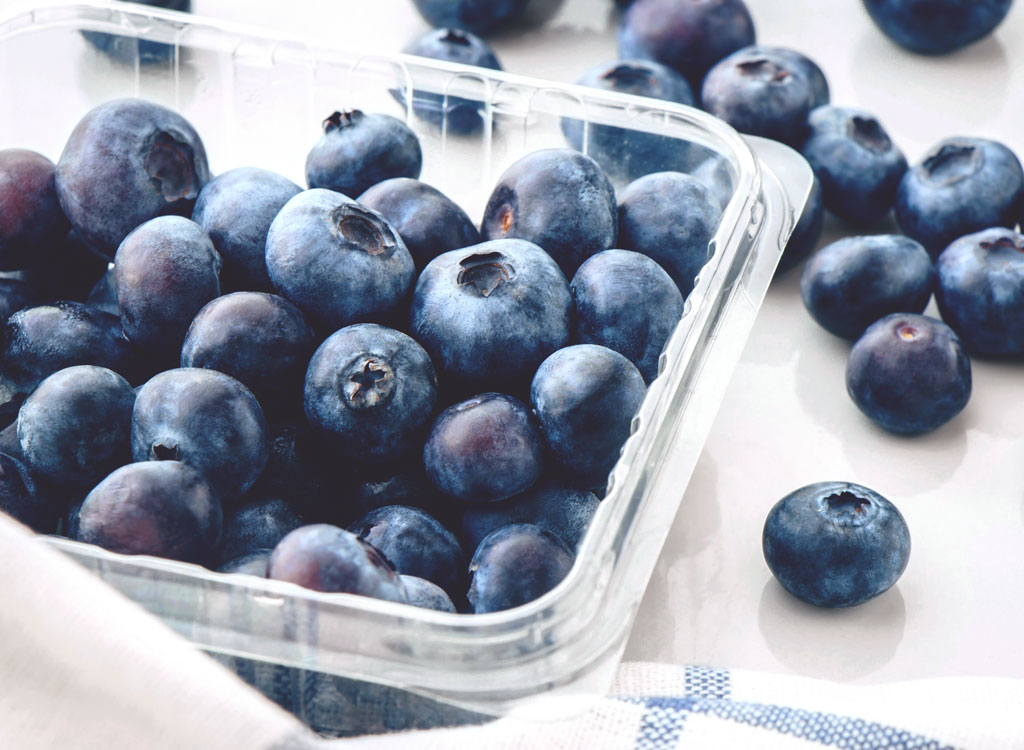
"Blueberries are rich in vitamins and minerals. According to the Dietary Guidelines for Americans, vegetables and fruits (like blueberries), are associated with reduced risk of many chronic diseases, including cardiovascular disease, and may be protective against certain types of cancers," Ruder says. "Blueberries are a good source of vitamin C and fiber. Vitamin C helps the immune system work properly and is an antioxidant that helps to protect cells from damage caused by free radicals. Fiber is a nutrient that most of us don't get nearly enough of. It serves many important functions, including aiding in digestion, contributing to feelings of satiety or fullness, helping to lower cholesterol, and keeping blood sugar levels in check."
Leafy Greens
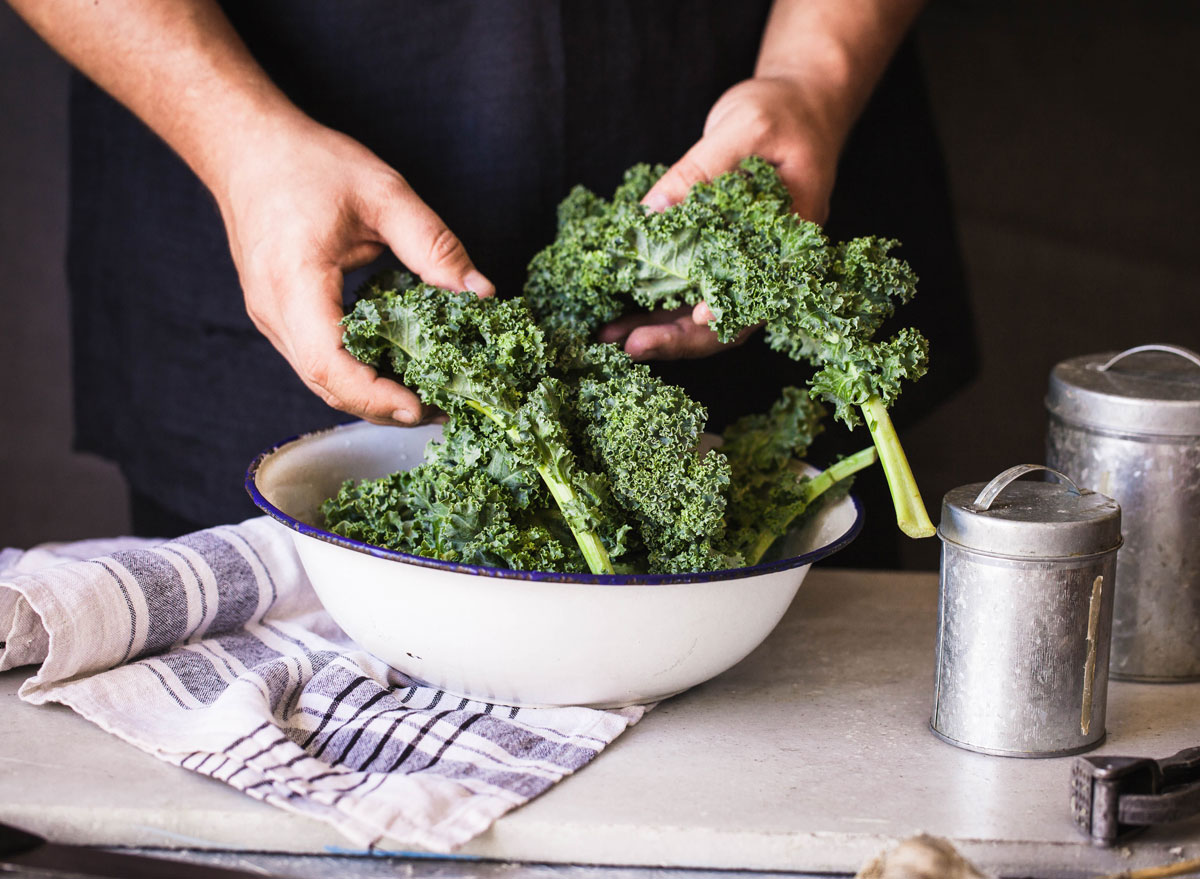
Why not stir up a salad for lunch instead of noshing on the usual carb-heavy sandwich? "Leafy greens such as kale or spinach are rich in nutrients like folate, which helps reduce the risk of heart disease, stroke, and osteoporosis. They are also rich in antioxidants such as lutein, carotenoids, and beta-carotene, which prevent diseases caused by oxidative stress. Lutein is useful for healthy eyes, as it protects against macular degeneration," Anne Guillot, D.N., says. "A 2018 study also showed that one serving a day of leafy greens could help slow down cognitive decline."
Nuts
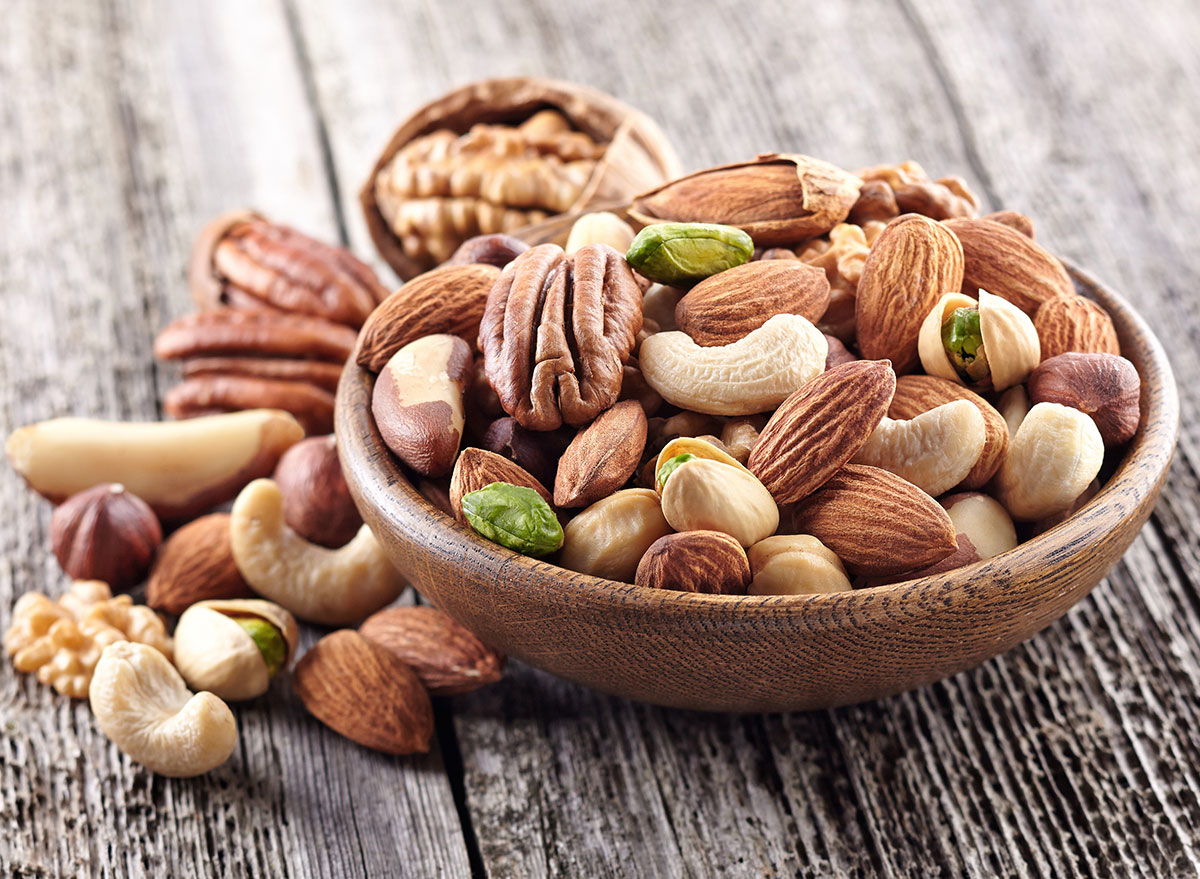
"Nuts are rich in protein, healthy fats, fiber, and anti-inflammatory polyphenols. Walnuts are especially rich in omega-6 and omega-3 essential fatty acids," Guillot says. "Research has shown that nuts (including almonds, Brazil nuts, cashews, hazelnuts, macadamias, pecans, pine nuts, pistachios, and walnuts) can help promote a healthy weight, good blood pressure levels, better cardiovascular health, and healthier cholesterol levels."
Flaxseeds
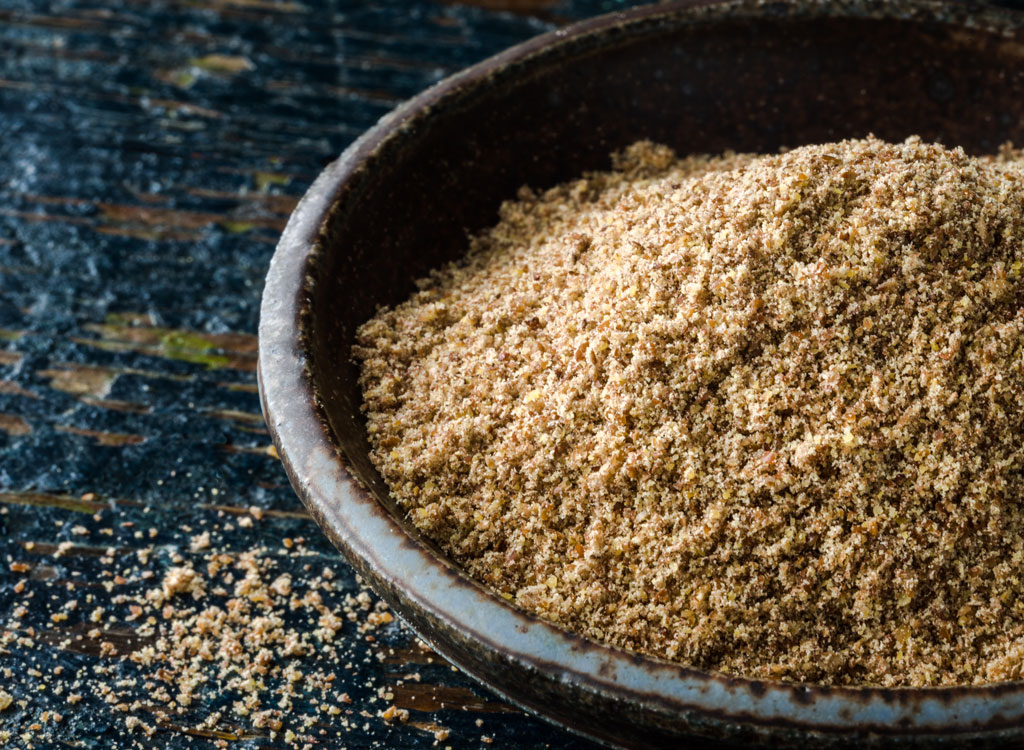
"Flaxseeds are the richest source of lignins, polyphenols that have weak estrogenic effects which may have significant health benefits," says Hever. "Research suggests that lignins may reduce the risk of breast cancer, control blood sugar, and lower blood pressure. Additionally, flaxseeds are excellent sources of essential omega-3 fats, which are crucial for controlling inflammation and heart health."
Plus, flaxseeds can help keep you regular. "Flaxseeds offer both soluble and insoluble fibers that are excellent for gastrointestinal health, which is why it can reduce your risk of constipation," Hever says.
Beets
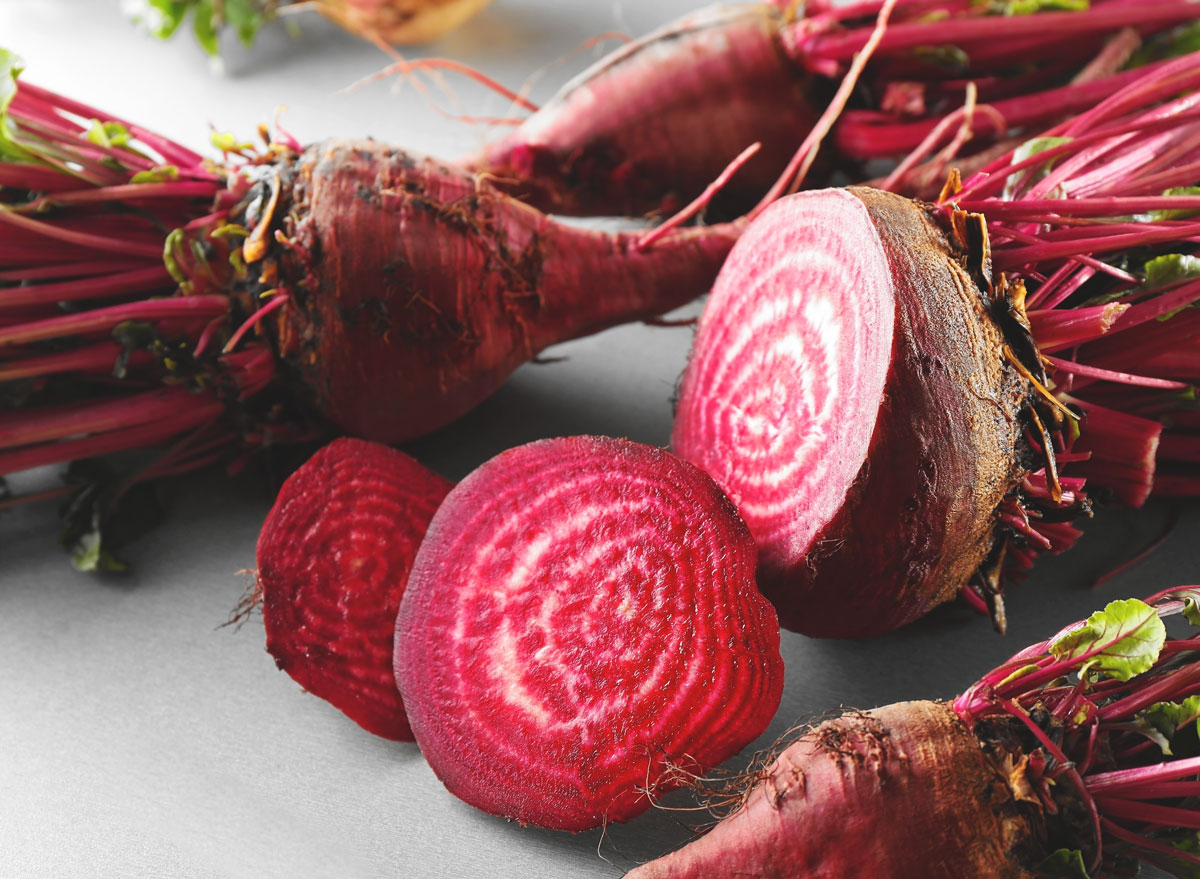
"Beets are a source of phytonutrients called betalains," Alicia Galvin, MEd, RD, LD, CLT, IFNCP, says. "Betanin is one of the best-studied betalains from beets and has been shown to provide antioxidant, anti-inflammatory, and detoxification support. The pigments present in beets have been shown to support activity in our body's Phase 2 detoxification process. Phase 2 is the metabolic step that our cells use to bind unwanted toxic substances up with small nutrient groups. This binding process effectively neutralizes the toxins and makes them sufficiently water-soluble for excretion in the urine. One critical binding process during Phase 2 involves an enzyme family called the glutathione-S-transferase family (GSTs). GSTs hook toxins up with glutathione for neutralization and excretion from the body. The betalains found in beet have been shown to trigger GST activity, and to aid in the elimination of toxins."
Garlic

"Garlic, a part of the allium family, provides us with sulfur-containing compounds, which assist with our cellular detoxification system, the health of our joints and connective tissue, and optimize blood vessel elasticity (which translates to cardiovascular benefits)," Galvin says. "Garlic has been shown to support healthier cholesterol profiles and also offers antioxidants such as manganese, vitamin C, and selenium, which all help reduce inflammation."
Olive Oil
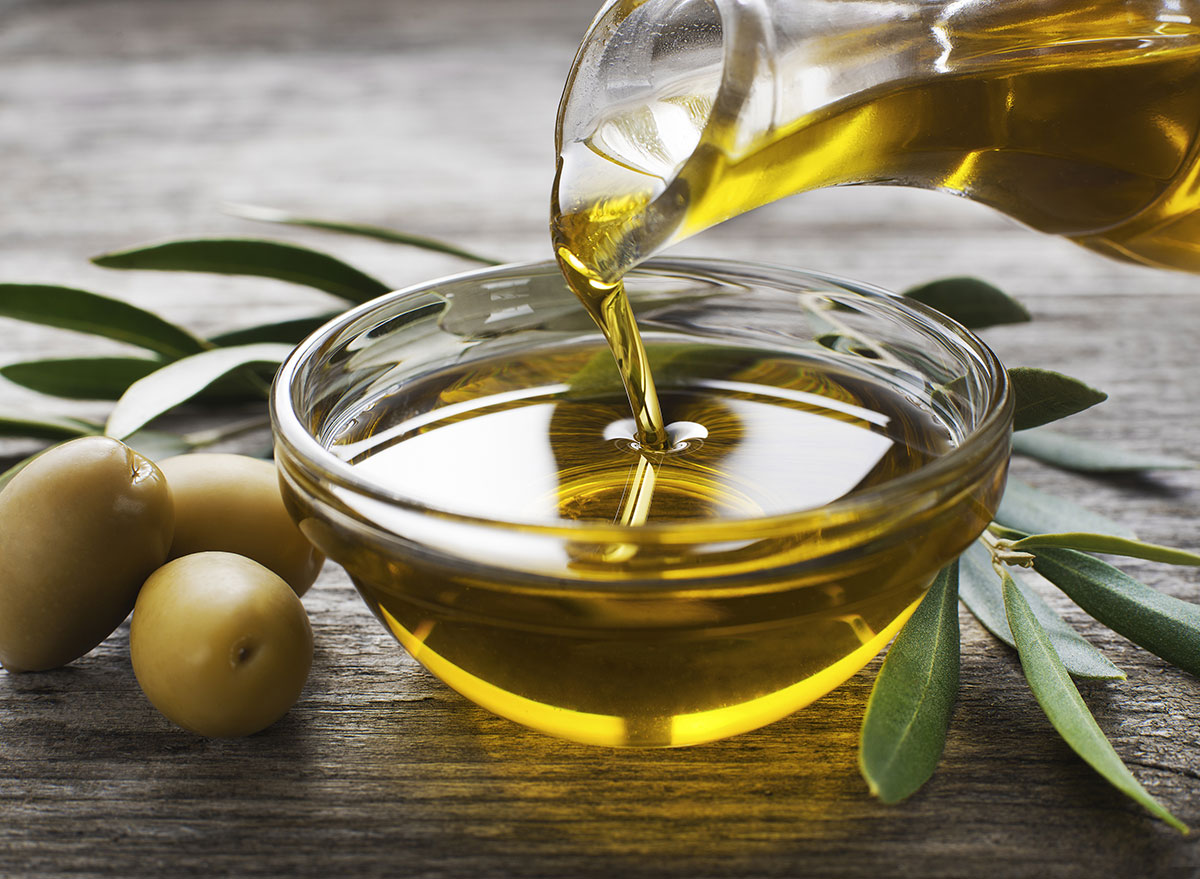
"Chronic inflammation is a risk factor for many types of cardiovascular disease, and extra virgin olive oil (EVOO) has well-documented anti-inflammatory properties," Galvin says. "These properties of EVOO are closely linked to its phenols and polyphenols. The cardioprotective, anti-inflammatory benefits can be seen with just one tablespoon per day, but as the number of tablespoons increases, the anti-inflammatory benefits have also been found to increase. Levels of CRP (C-reactive protein, an inflammatory marker in lab work) have been shown to decrease with the consumption of olive oil."
Instead of drizzling your salad with bottled dressing, opt for a homemade mix of olive oil and lemon juice to reap these benefits!
Beans
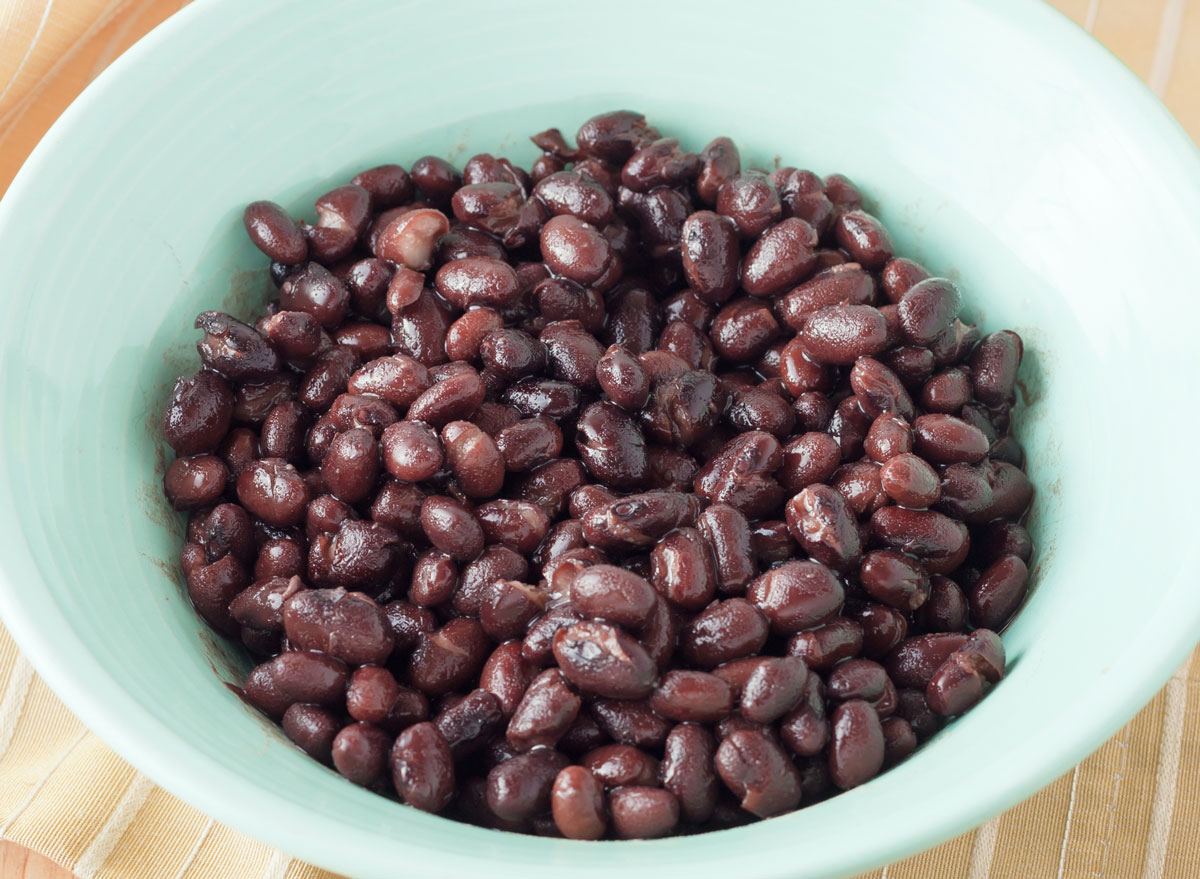
"Beans are the unsung hero of the protein world, but they are economical, environmentally friendly, and incredibly healthy. They are high in protein and fiber to help keep you satisfied and promote weight maintenance. Beans have been shown to help reduce your risk of heart disease and promote stable blood sugar levels (both largely in part to the soluble fiber)," says registered dietitian and yoga teacher Morgan Bettini, MS, RDN, E-RYT.
Beans are versatile, too: You can toss them into a salad, pair them with your favorite protein as a side dish, and even sneak them into one of these 20 Healthy Brownie Ideas!
Eggs
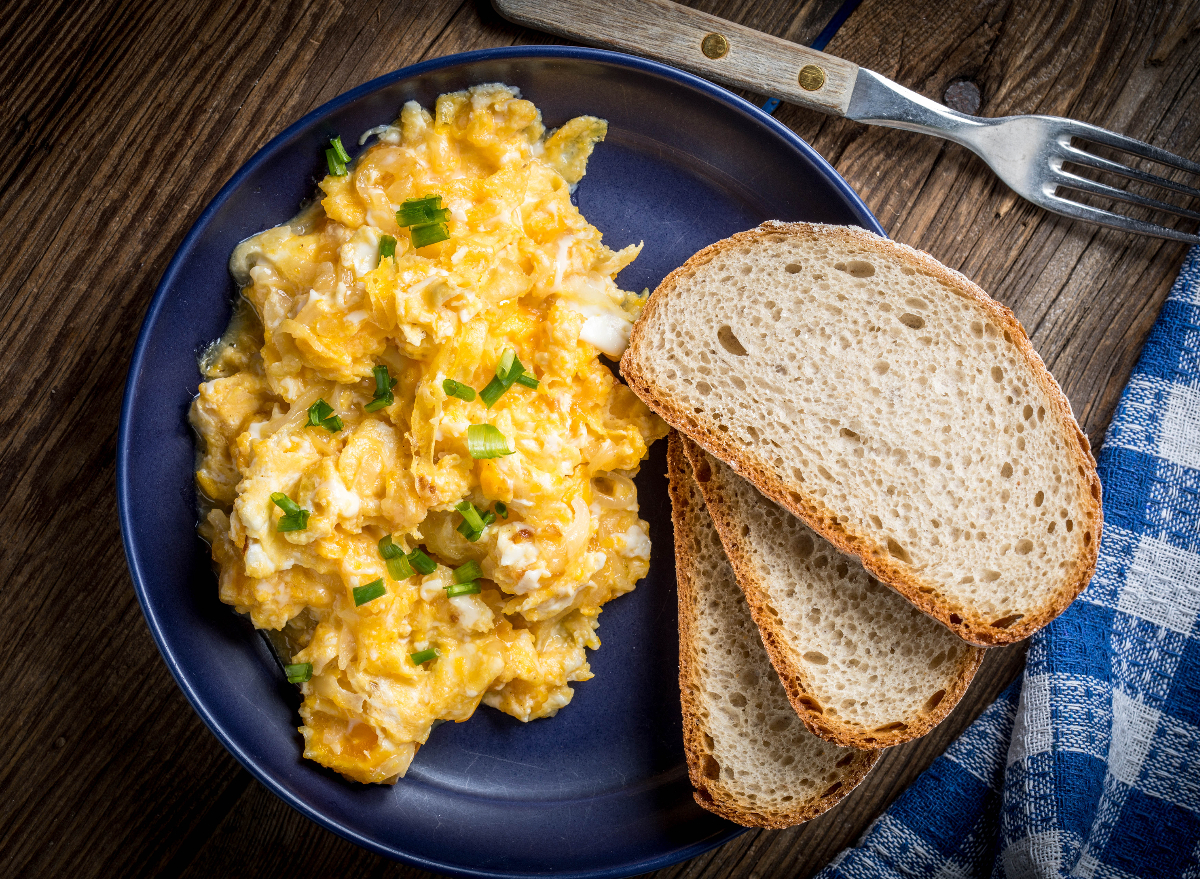
"Whole eggs are a great source of choline, an essential nutrient needed for optimal cognitive function, metabolism and transport of lipids, and cardiovascular health," Kristin Koskinen, RDN, LD, CD, says. "Eggs from pastured hens or those fed an omega-3-rich diet also provide essential fatty acids that are known to be anti-inflammatory and support brain health. Concerns about eating eggs and serum cholesterol have been set aside in recent years." Koskinen suggests replacing sugary, processed breakfast cereals with eggs for a more wholesome A.M. meal.
High-Fiber Cereals
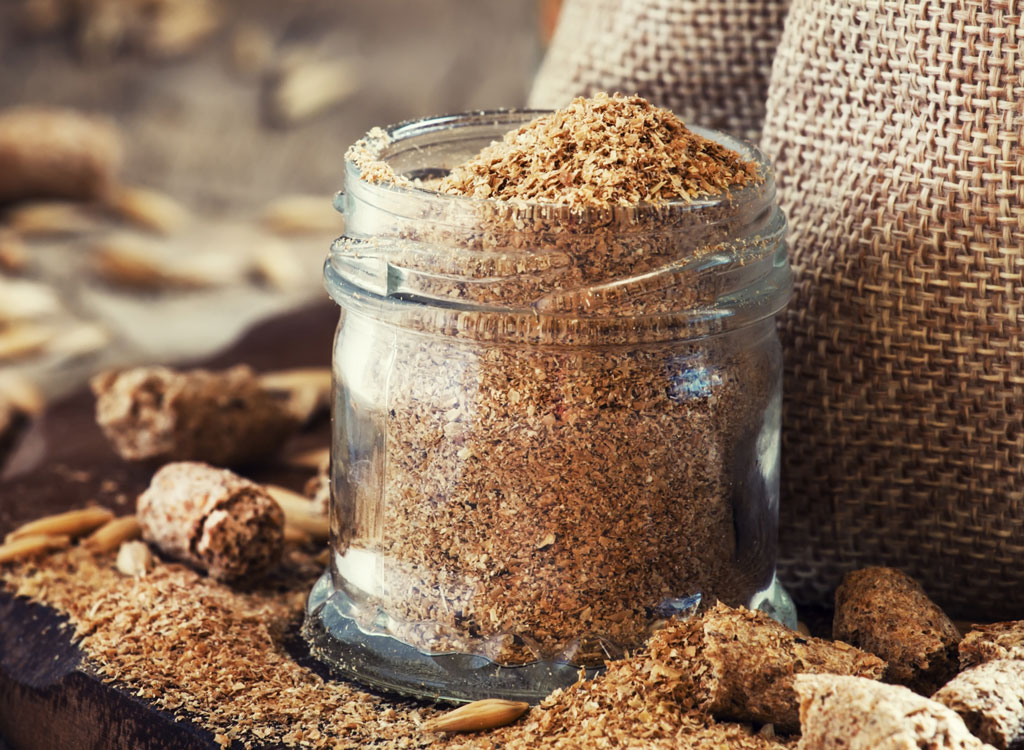
"I keep high-fiber cereals like All-Bran with me at all times—in my pantry, desk drawer, and sometimes in pre-portioned baggies in my purse. Many fall short on fiber (adults need roughly 25 to 38 grams each day), yet it's an important nutrient that promotes gut health, controls blood sugar levels, and keeps you feeling satisfied," says Julie Pappas, R.D. To help her get more fiber in her diet, Pappas adds high-fiber cereals into Greek yogurt and protein shakes for a more balanced snack or meal.
Nut and Seed Butters
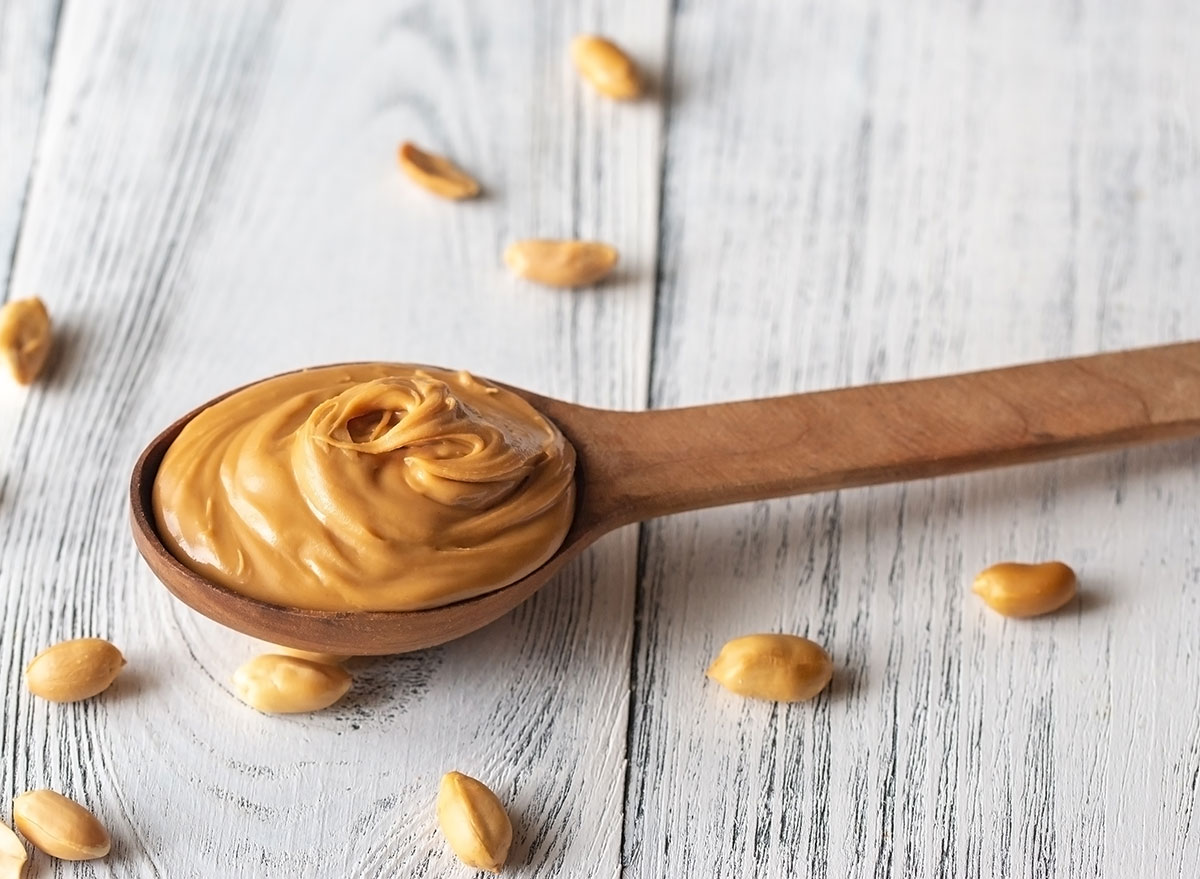
Before you break out the butter tub, look again: Plant-based nut butters and seed butters should be your daily go-to's. Whether it's peanut butter, sunflower butter, cashew butter, or almond butter, these spreads are all great sources of fiber, protein, monounsaturated fats, and antioxidants, says Rachel Fine, M.S., R.D., C.S.S.D., C.D.N. "Almond butter tastes similar to peanut butter but has twice as much iron, which helps to prevent anemia, a chronic disorder that causes fatigue among women of childbearing age," Fine says.
Oatmeal
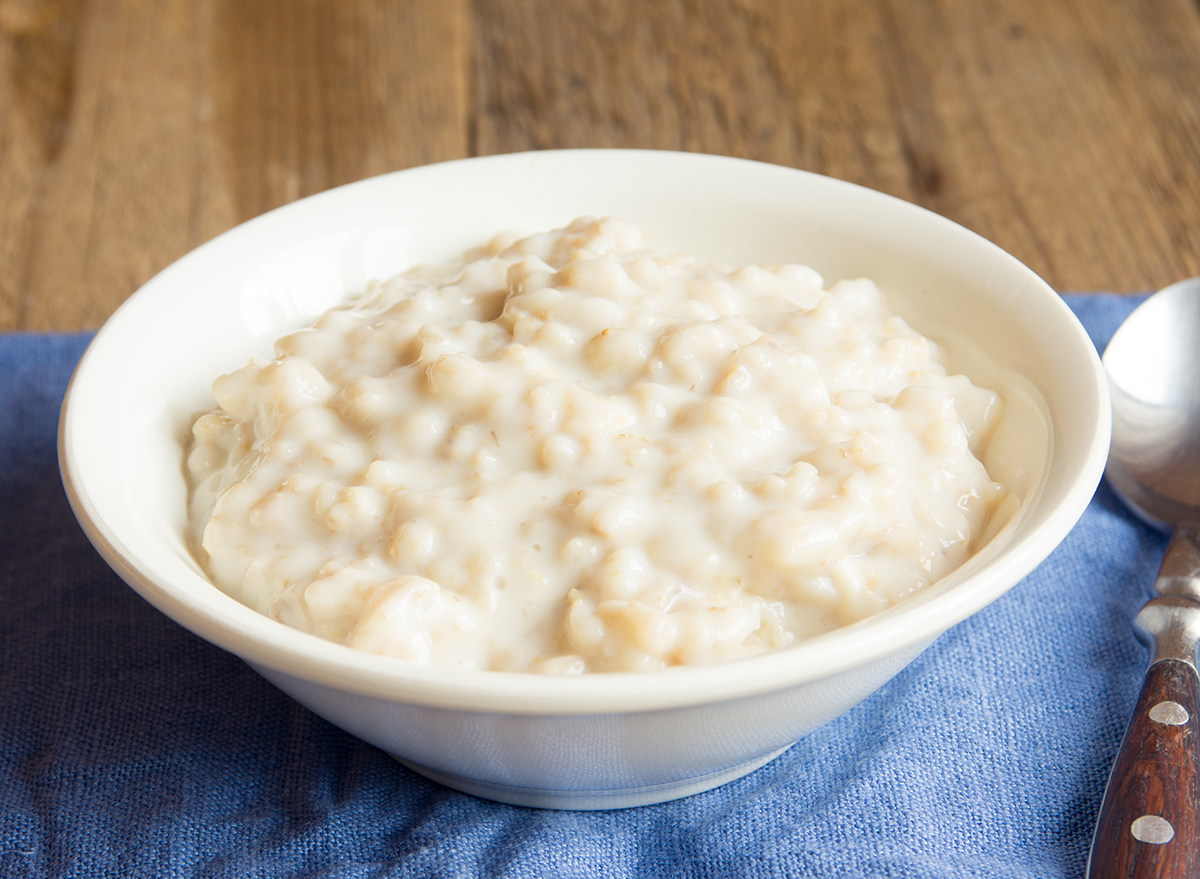
"Oatmeal is an excellent source of soluble fiber, which swells when it comes in contact with water (different than the fiber in most fruits and vegetables). Oatmeal happens to be the best source of a particular soluble fiber, beta-glucan, that is proven to aid in lowering blood glucose levels and LDL cholesterol. Soluble fiber is necessary on a daily basis in order to keep LDL cholesterol levels low and maintain heart health," says Ashley Reaver, M.S., R.D., C.S.S.D.
Water

"This may sound obvious, but the majority of the patients I see are drinking less than even half of their recommended amounts of water each day," says Marissa Meshulam, R.D. "Water is vital for every bodily function, so it is imperative we get in the amount we need! While dehydration can cause annoying side effects like fatigue and brain fog, it can also mask itself as hunger. When working with patients on weight loss, I always ensure they are getting enough water during the day. Being adequately hydrated also fills your stomach, so drinking water with meals is a great way to make sure you do not overeat. I usually start with the goal of two liters per day and eventually increase to 2.5 to 3 liters per day if that fits with my clients' goals and lifestyles."
If drinking plain ol' H2O is a challenge, Meshulam suggests buying a fun cup for your desk. "I find that reusable straws make sipping very easy. [Try bringing] a water bottle to carry with you. If plain water is not your jam, try infusing still or sparkling water with slices of fruit or some chopped herbs (I love combining orange and basil)," Meshulam says.


